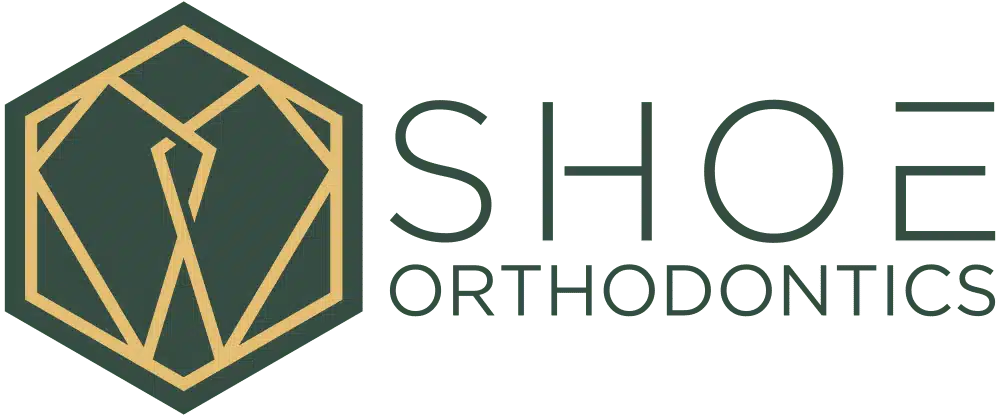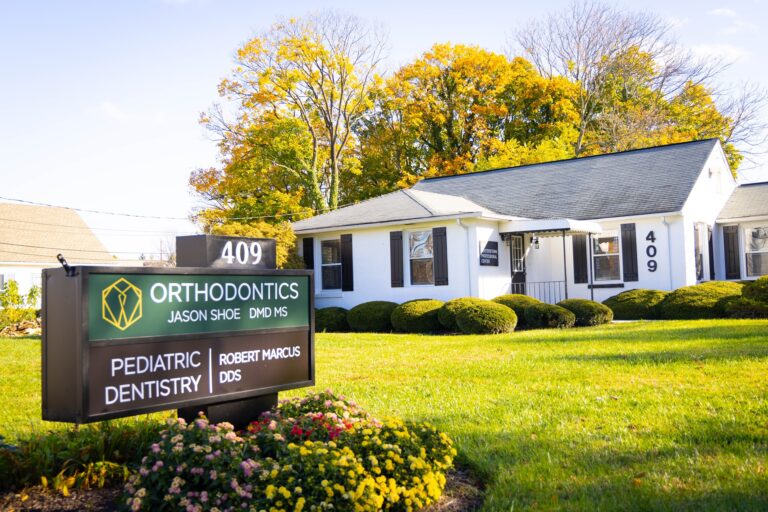What can braces fix? Can braces fix an overbite, teeth crowding, or gaps in teeth? They can fix that and so much more! Braces are about so much more than fixing crooked teeth.
Braces can repair misaligned jaws that can cause headaches, jaw pain, and breakdown of the joint, known as TMJ Disorder. Braces can even help reduce digestive problems by helping you chew better, and they can give you a huge boost in self-esteem!
At Shoe Orthodontics, we’ve fixed a variety of dental issues with braces, from mild overbites to complex, crowded teeth that require months of pre-treatment. The power braces have improved our patient’s lives by providing much more than just a straight smile.

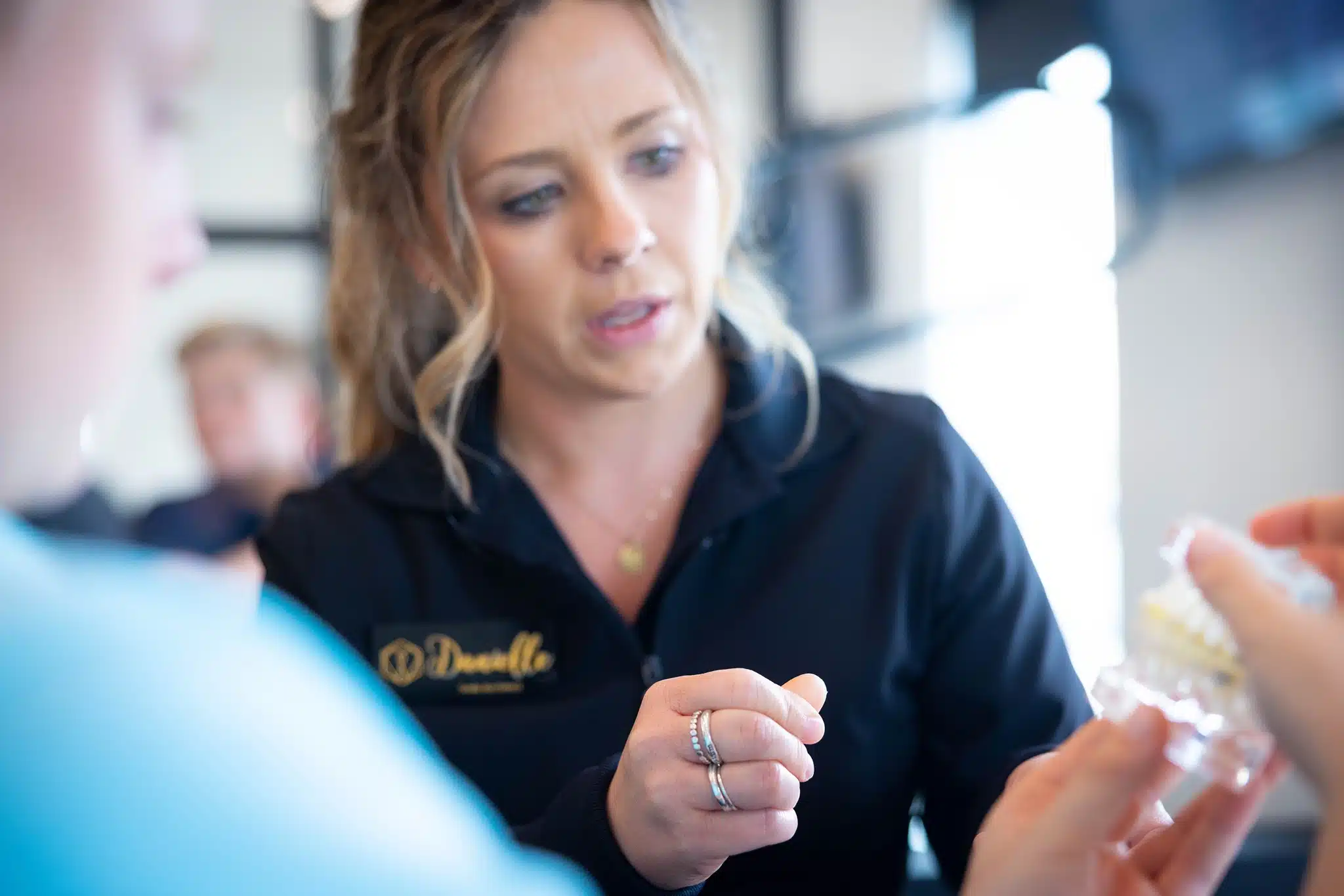
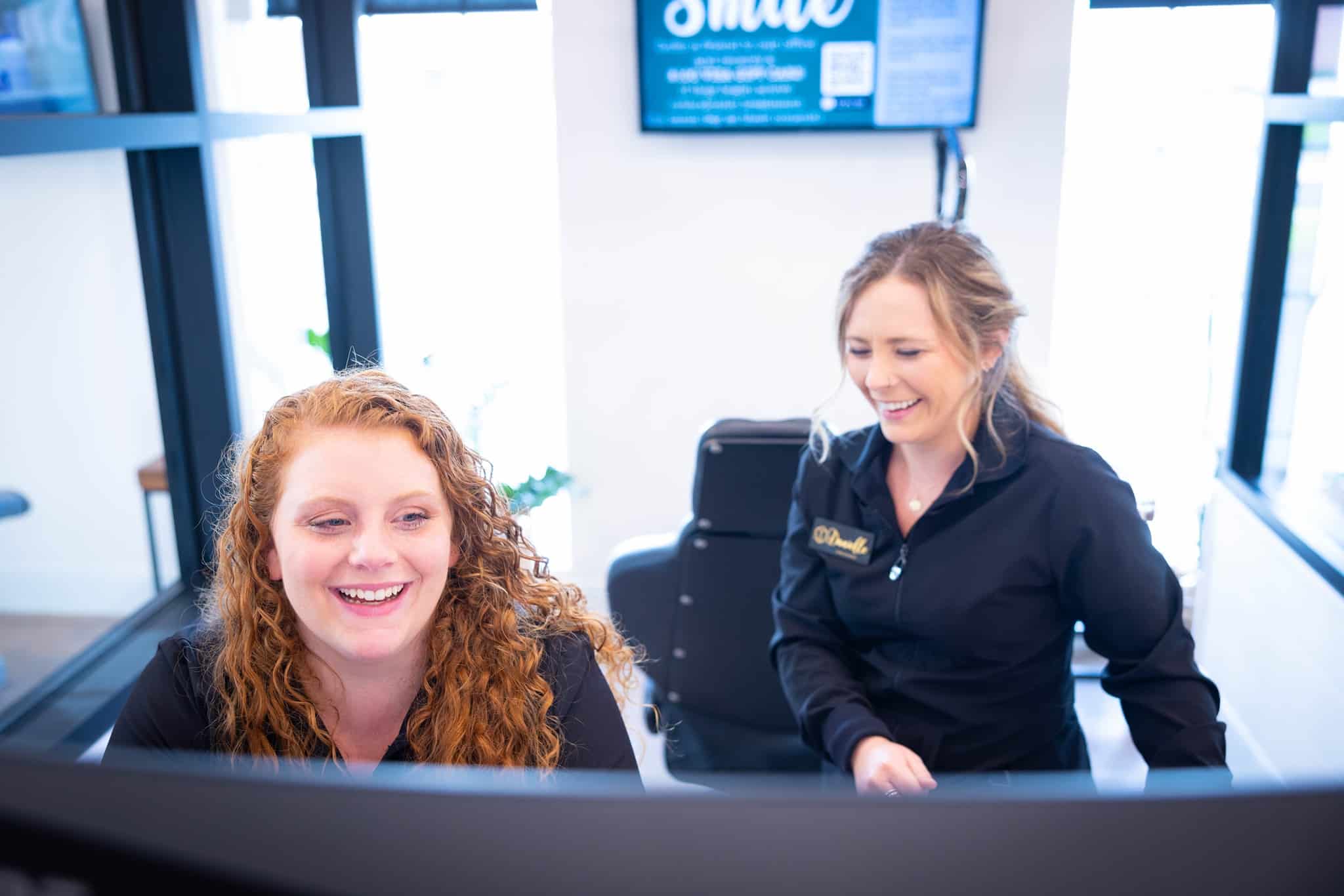
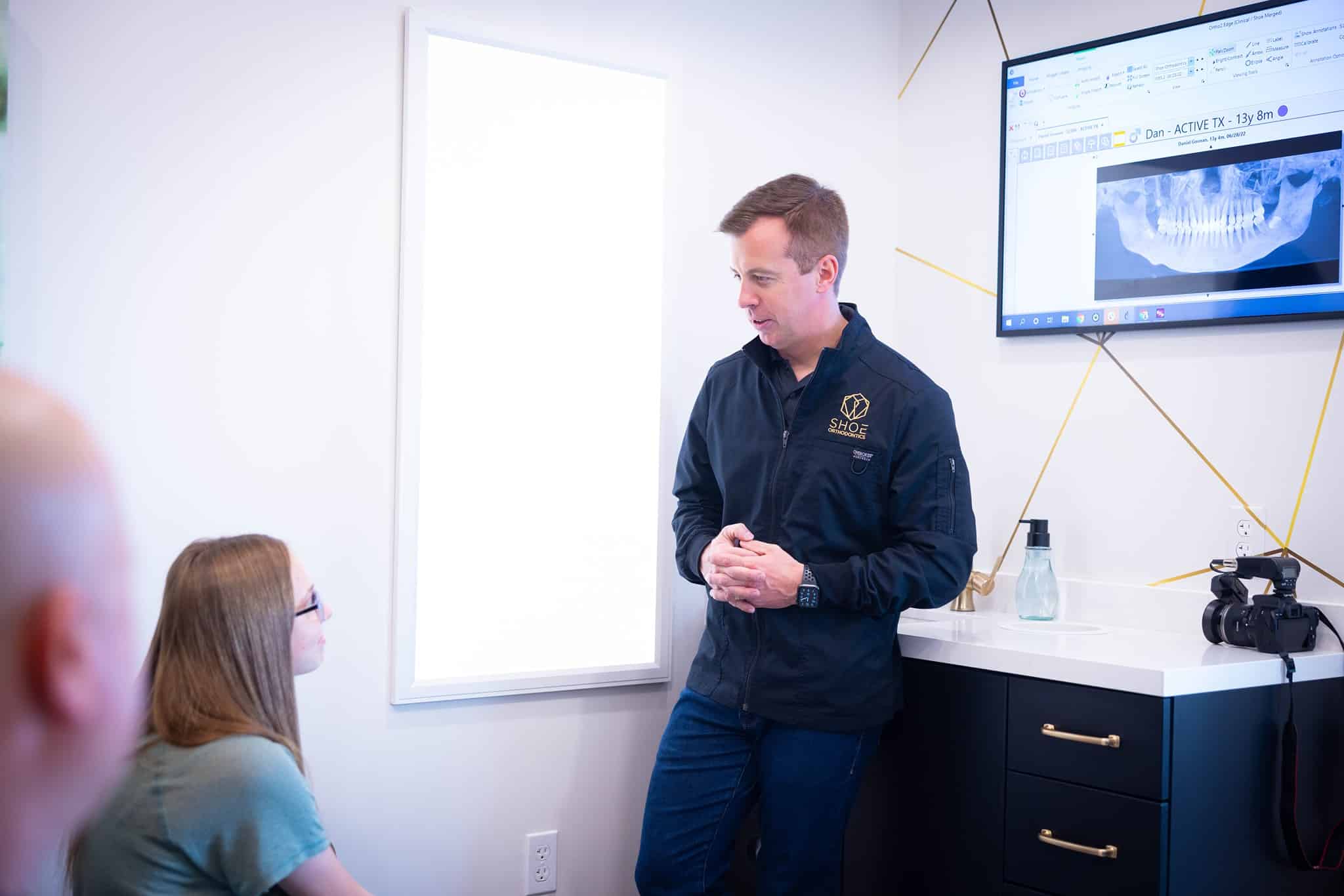
How Can Braces Fix My Smile?
There are nine significant ways in which braces can repair your smile. They can fix each problem or be used to fix several dental issues at once. Here are the most common dental issues that braces repair.
Overbite
What is an overbite? Your upper front teeth sit naturally just in front of your lower teeth. But more space there than usual means you have overbite teeth. Overbites can make it difficult to bite correctly and even speak properly. That’s because the tongue has to stretch to touch the back of the teeth for specific sounds.
How do you fix an overbite? Braces will move the teeth back and correct your overbite with gentle pressure.
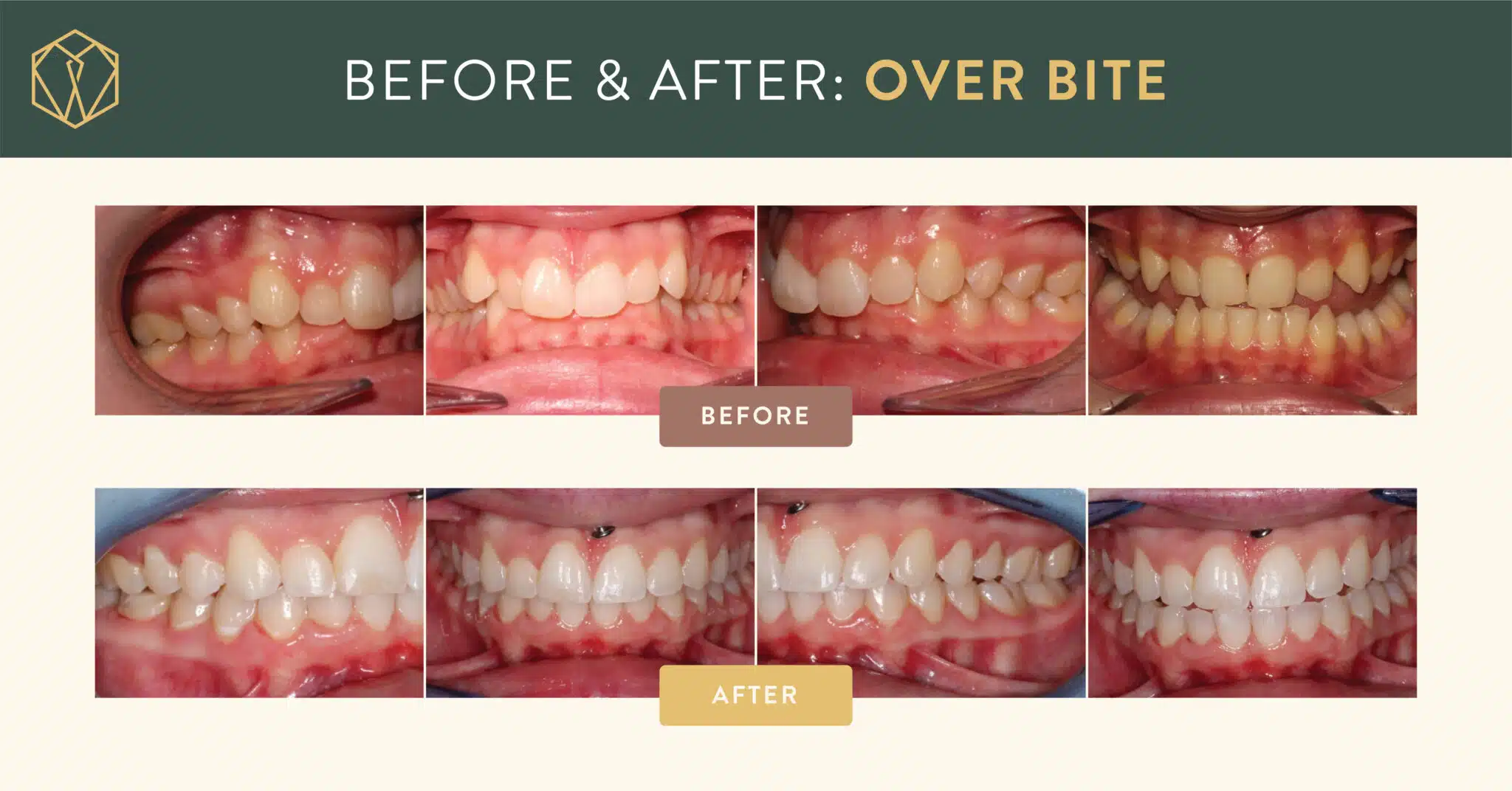
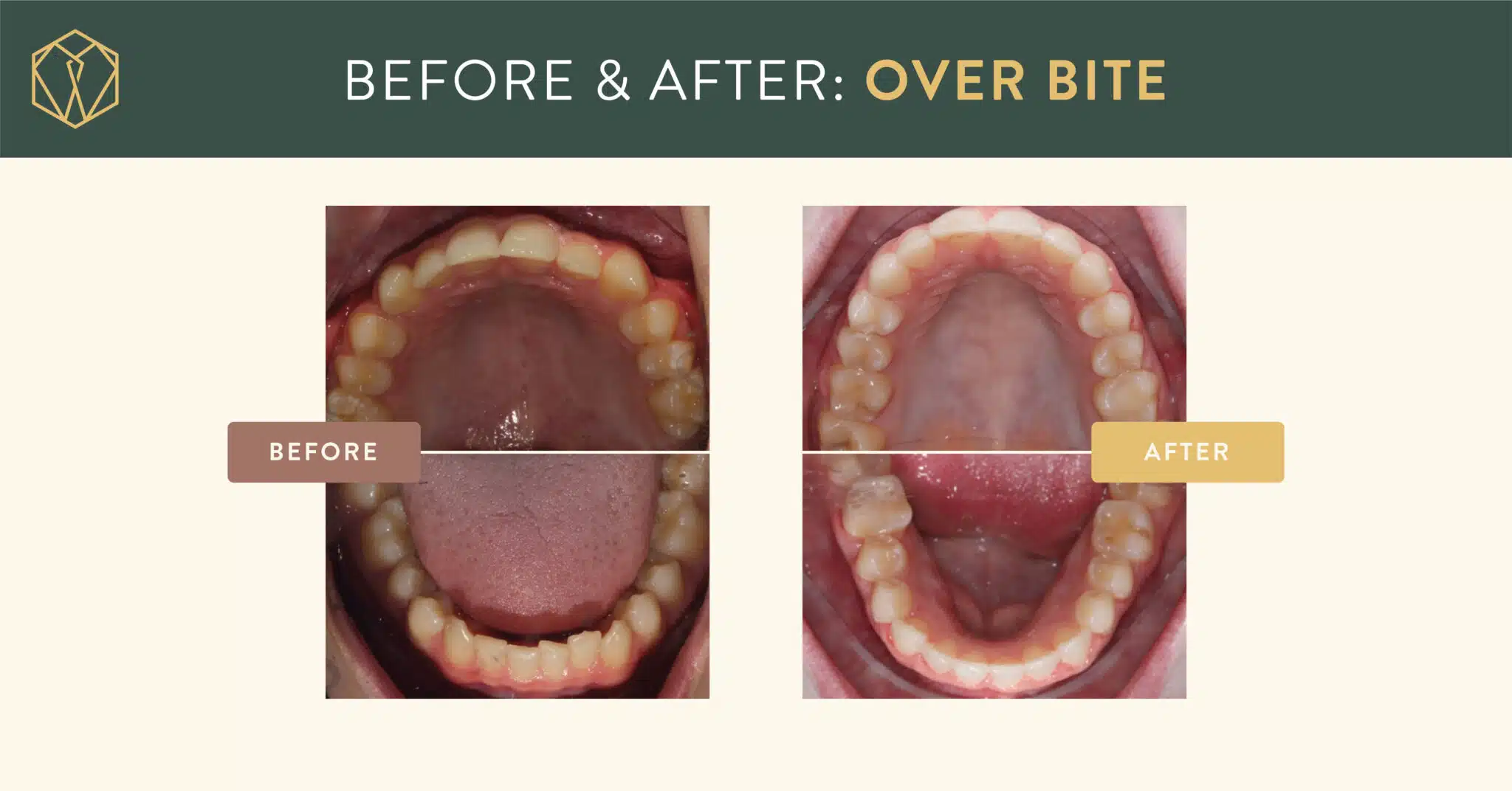
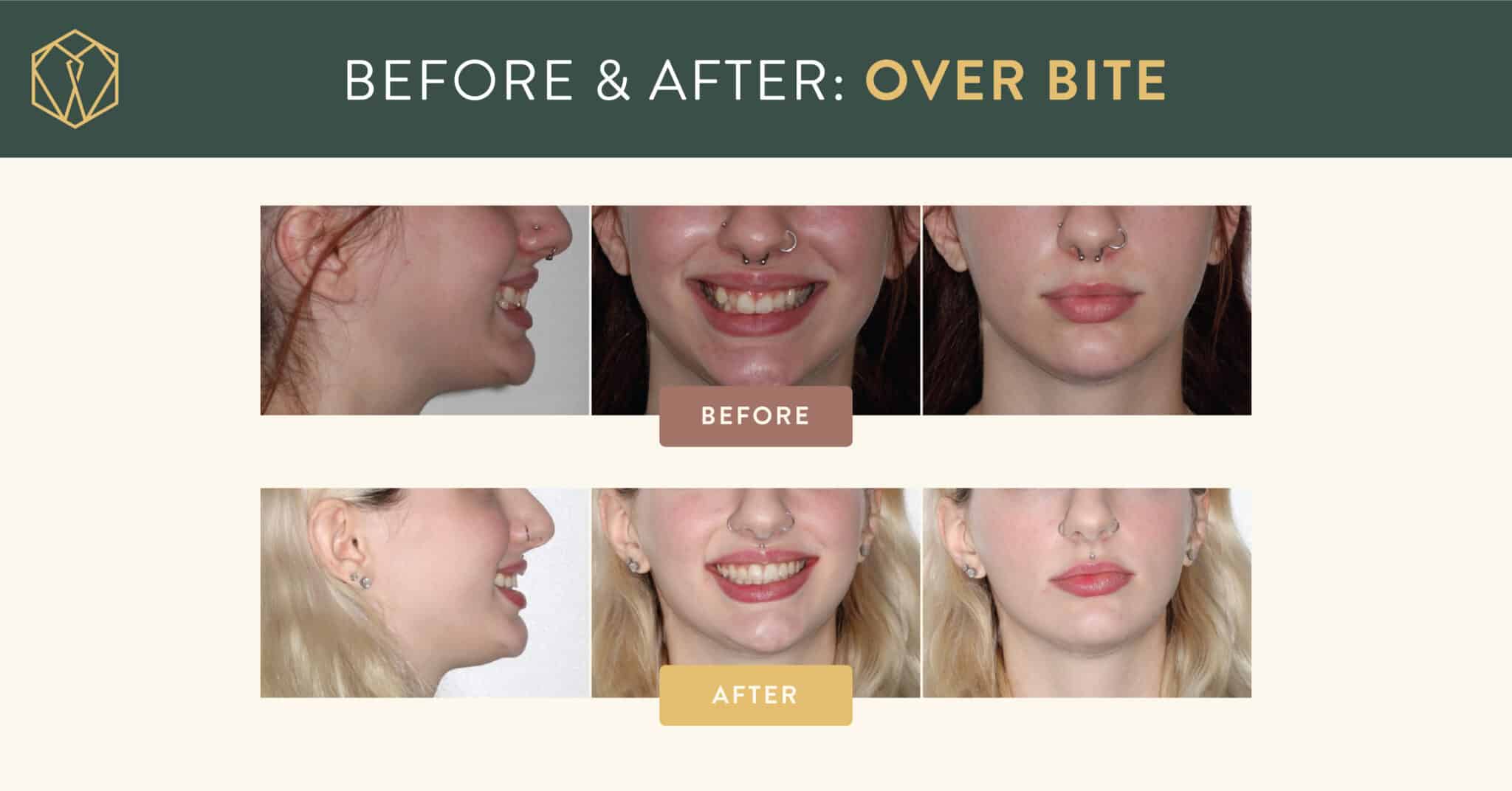
Underbite
What is an underbite? An underbite is the opposite of an overbite. Instead of the bottom lower teeth sitting just behind the upper teeth, the lower jaw is thrust forward so the upper teeth are behind the lower teeth. Braces can fix an underbite and even a severe underbite, which can alter the shape of the face and make it more difficult to bite and chew.
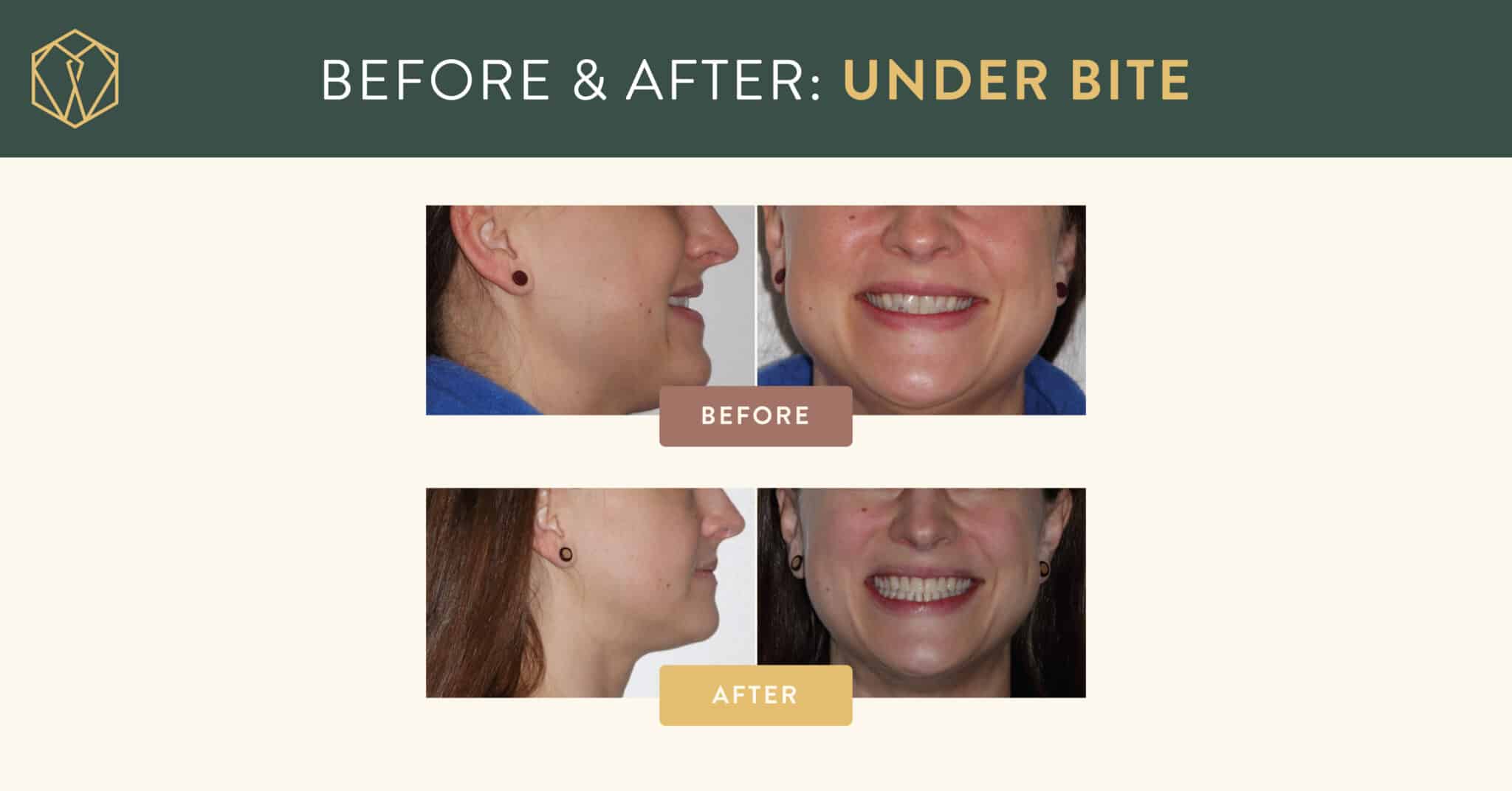
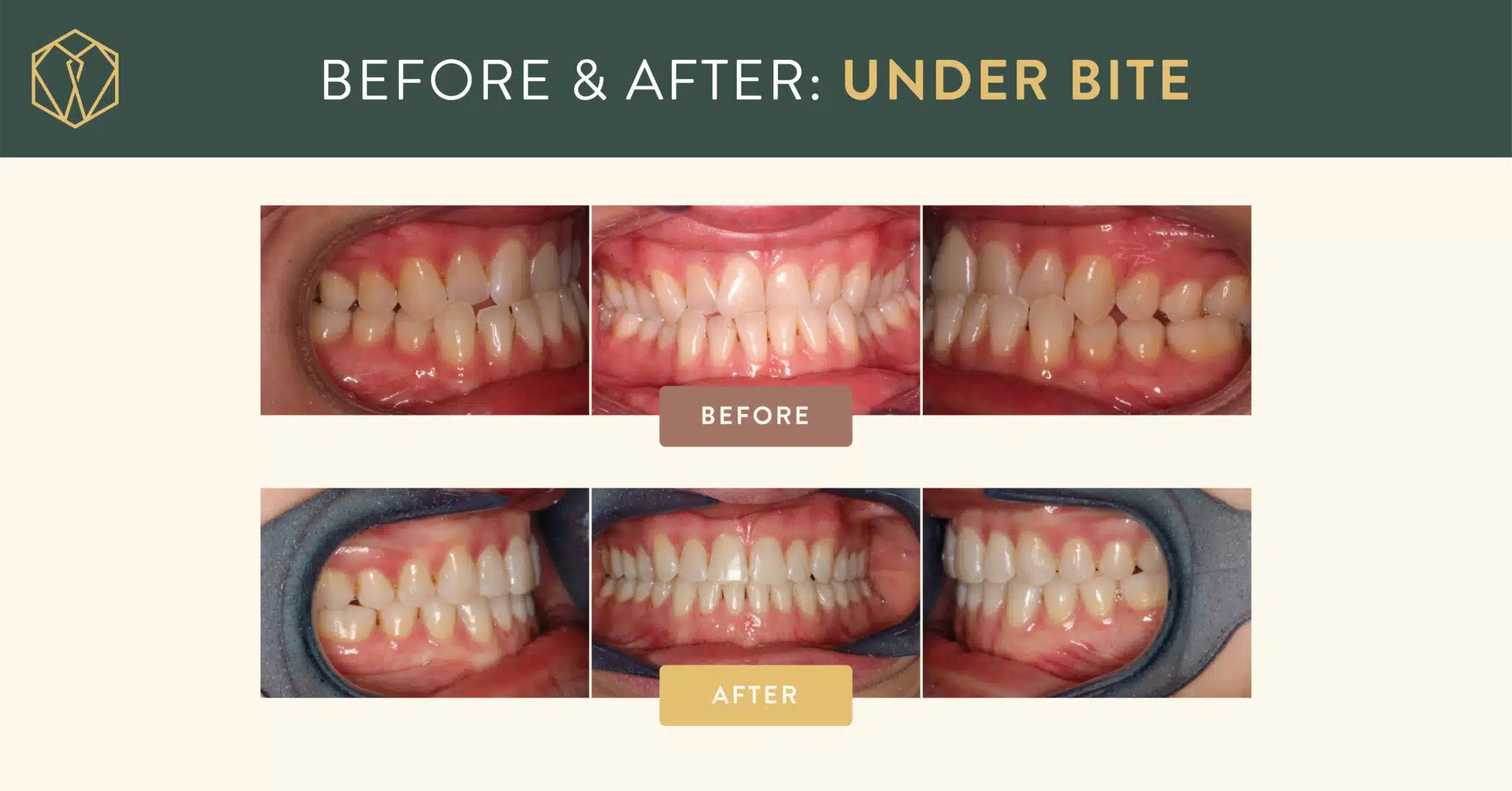
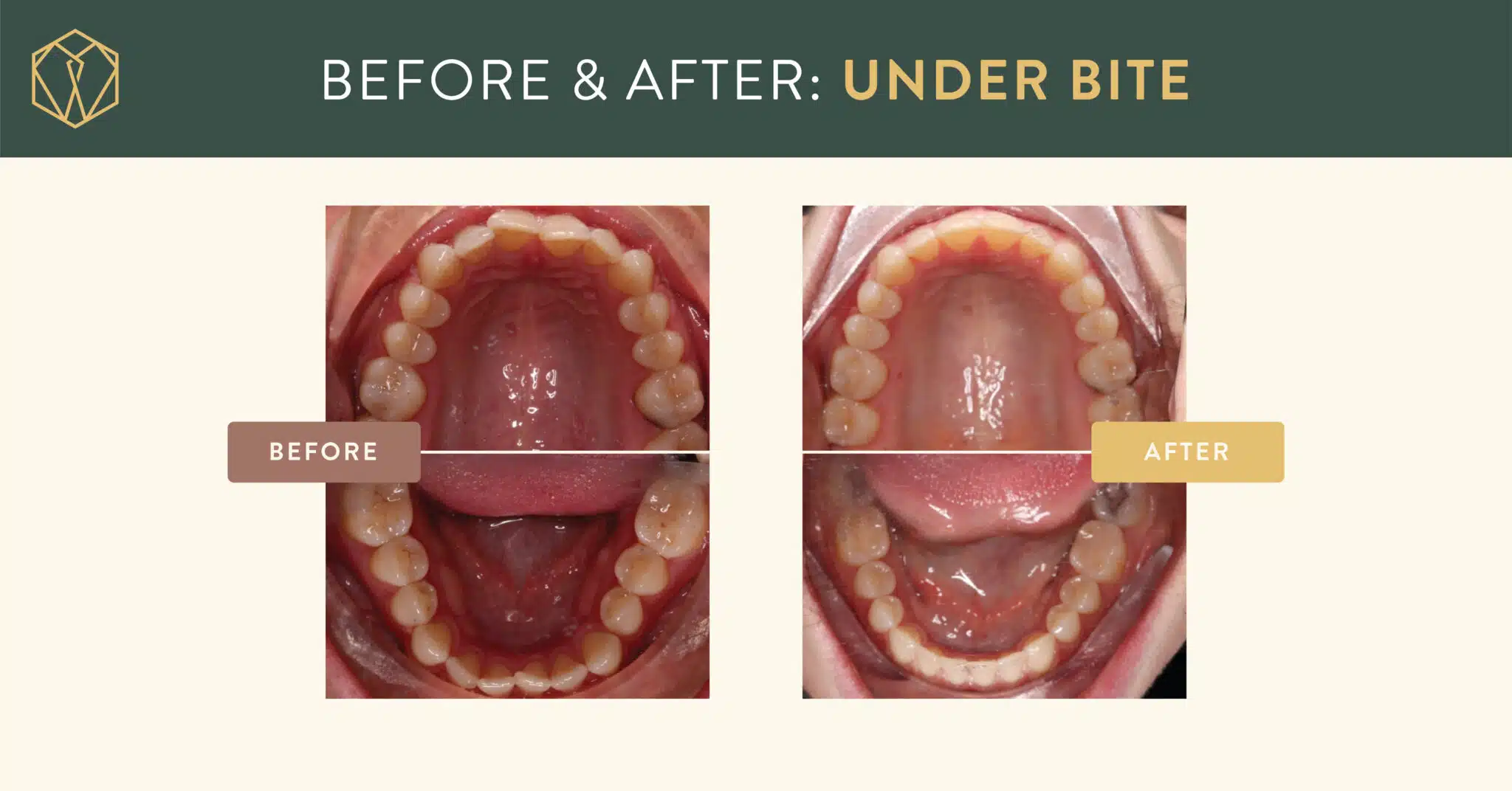
Crossbite
What is a crossbite? Your upper back teeth sit naturally to the outside of your lower teeth. A crossbite is when those teeth sit inside the lower teeth instead. It can be one tooth or several teeth. It can make chewing more difficult, which can affect your digestion.
Braces, often combined with rubber bands, can move your teeth back to where they belong and fix your crossbite. A crossbite can also be in the front of your mouth, called an anterior crossbite. The posterior crossbite involves the back teeth.
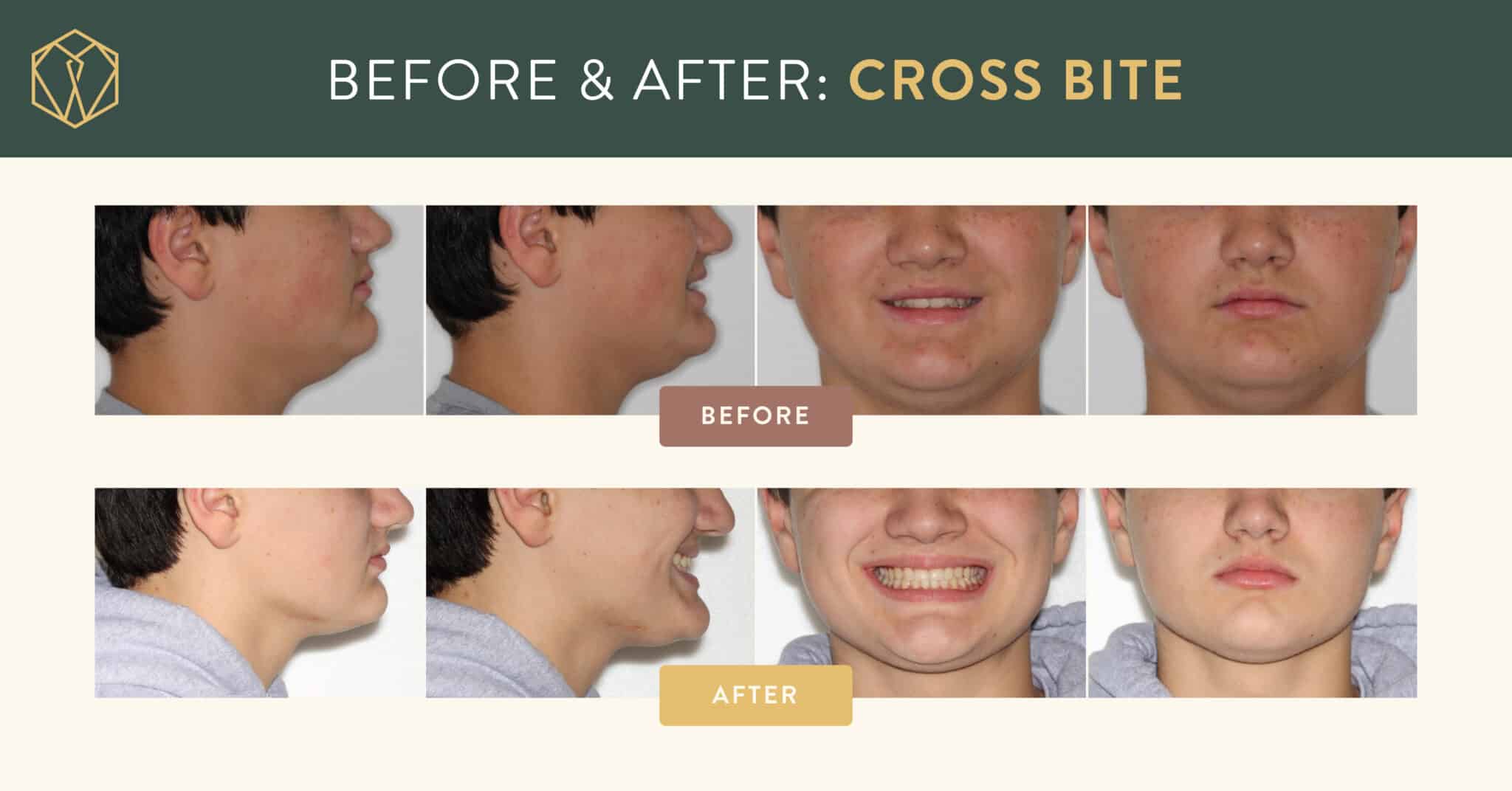
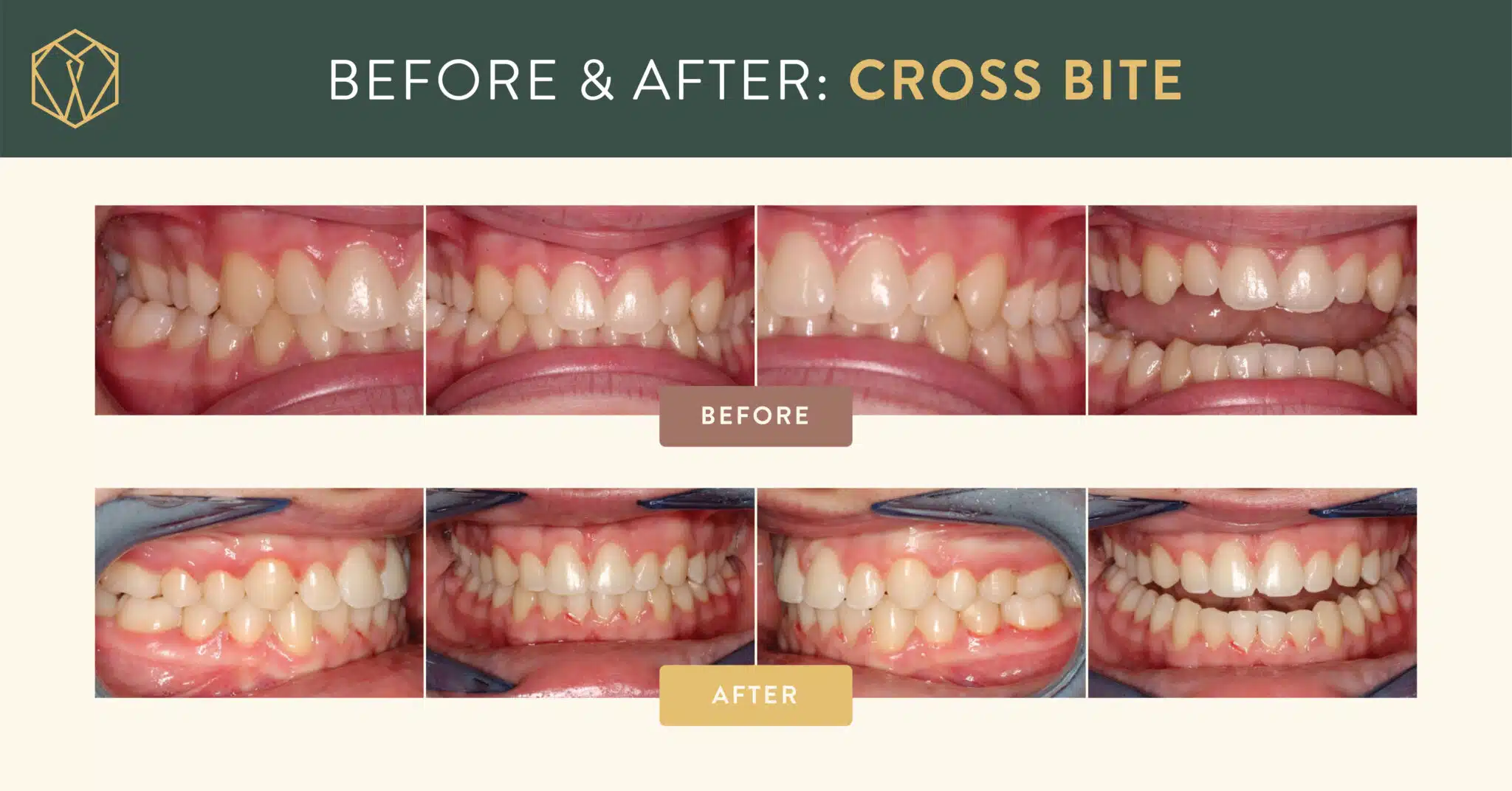
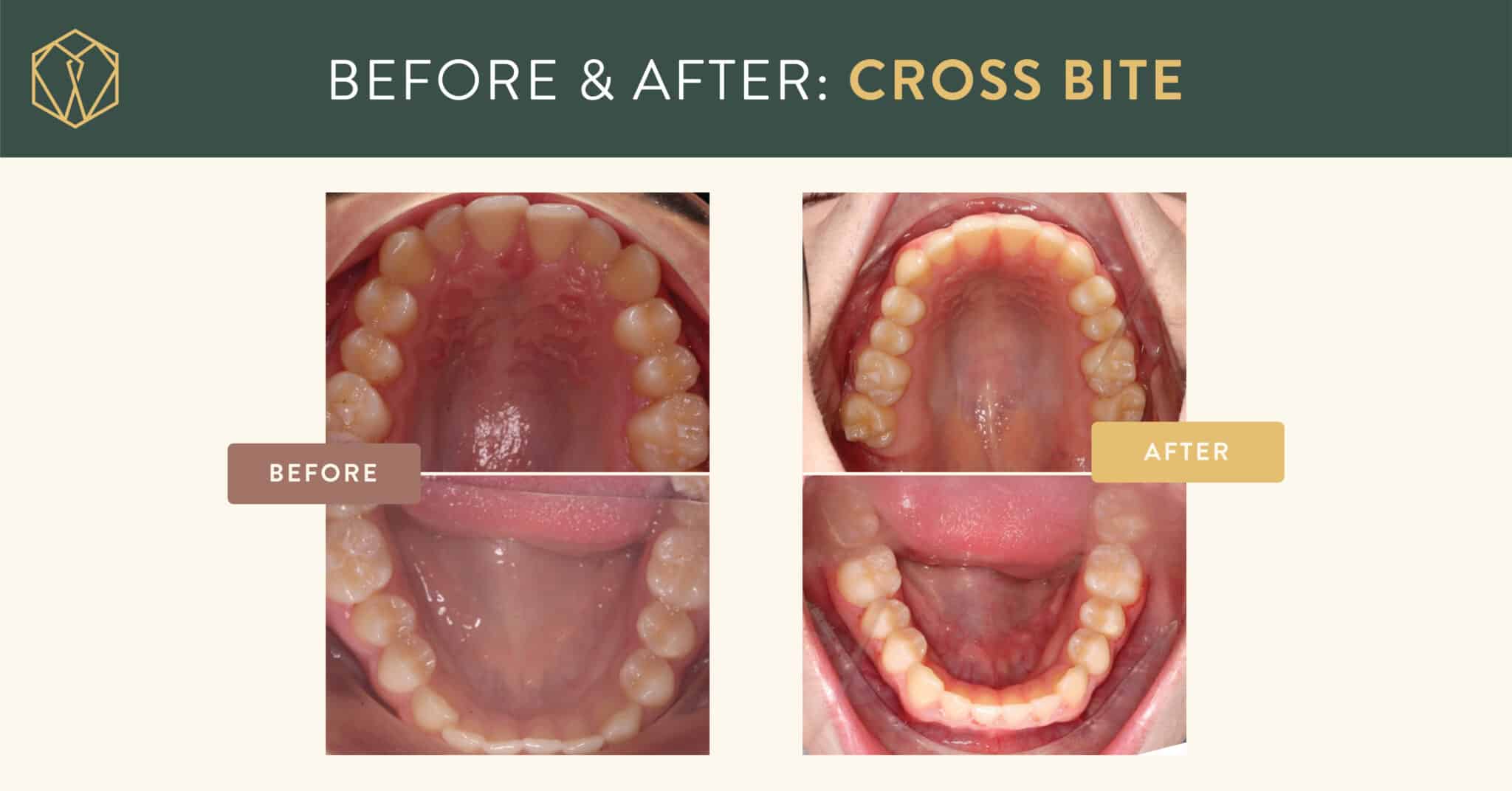
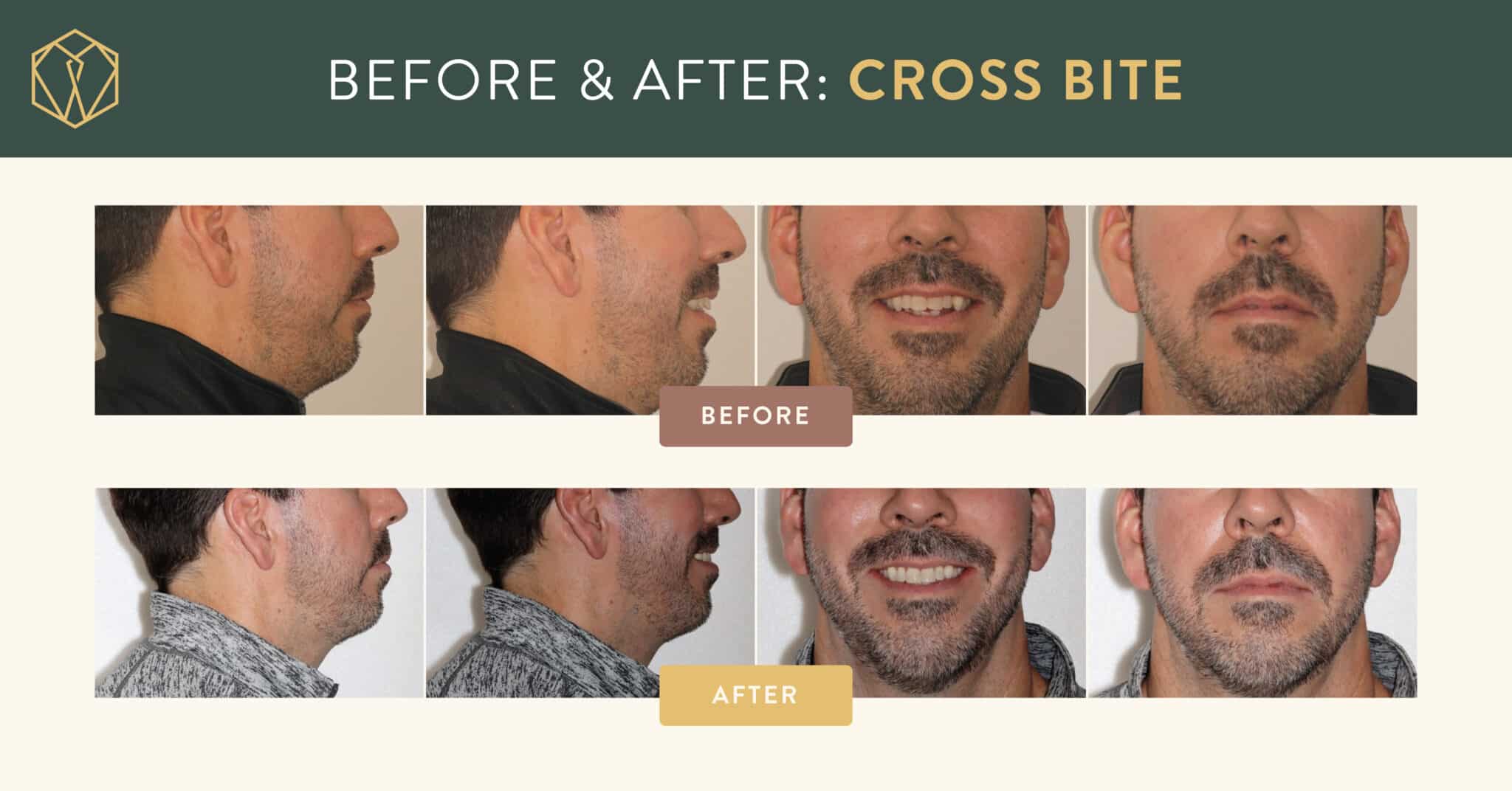
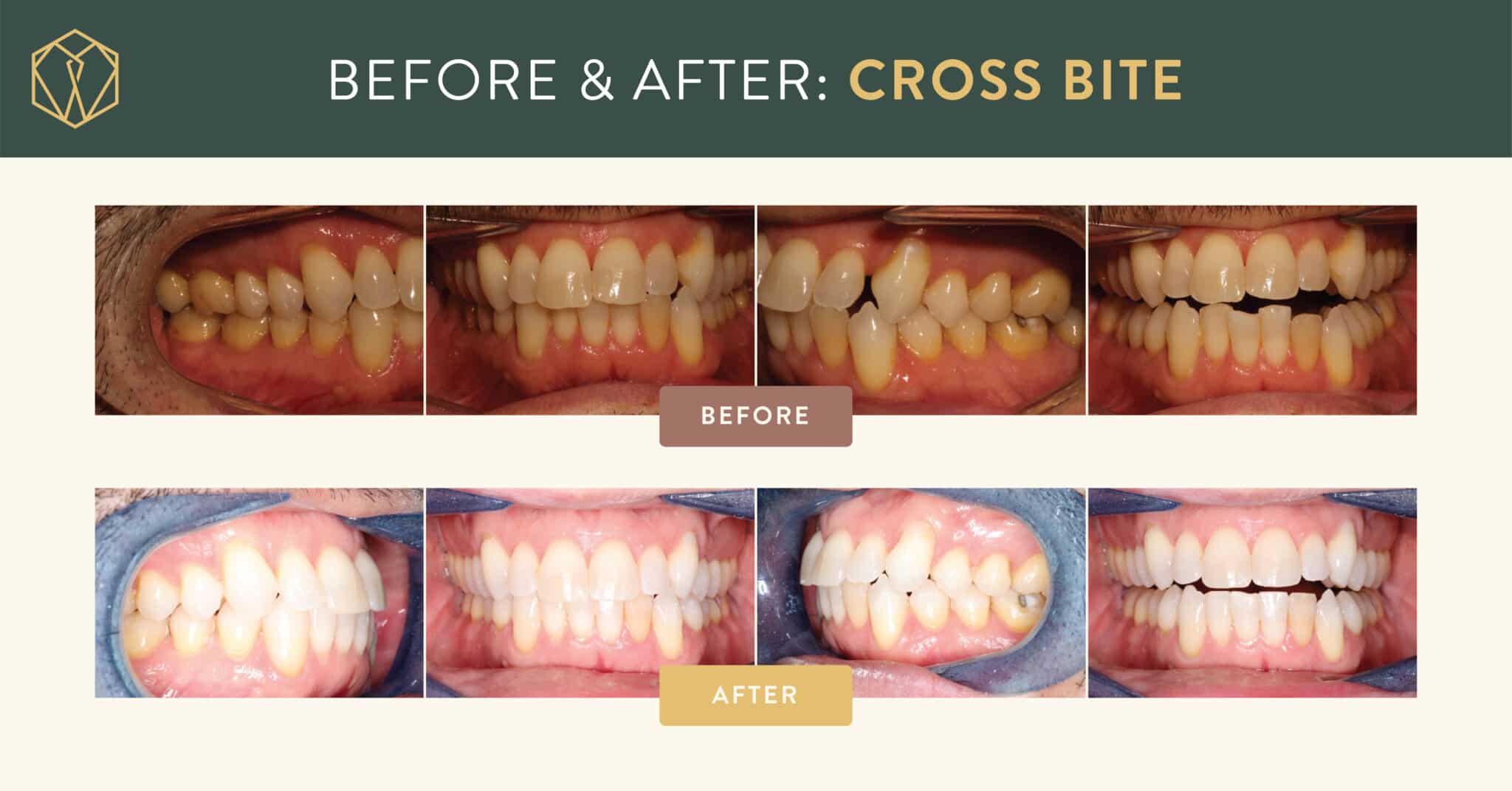
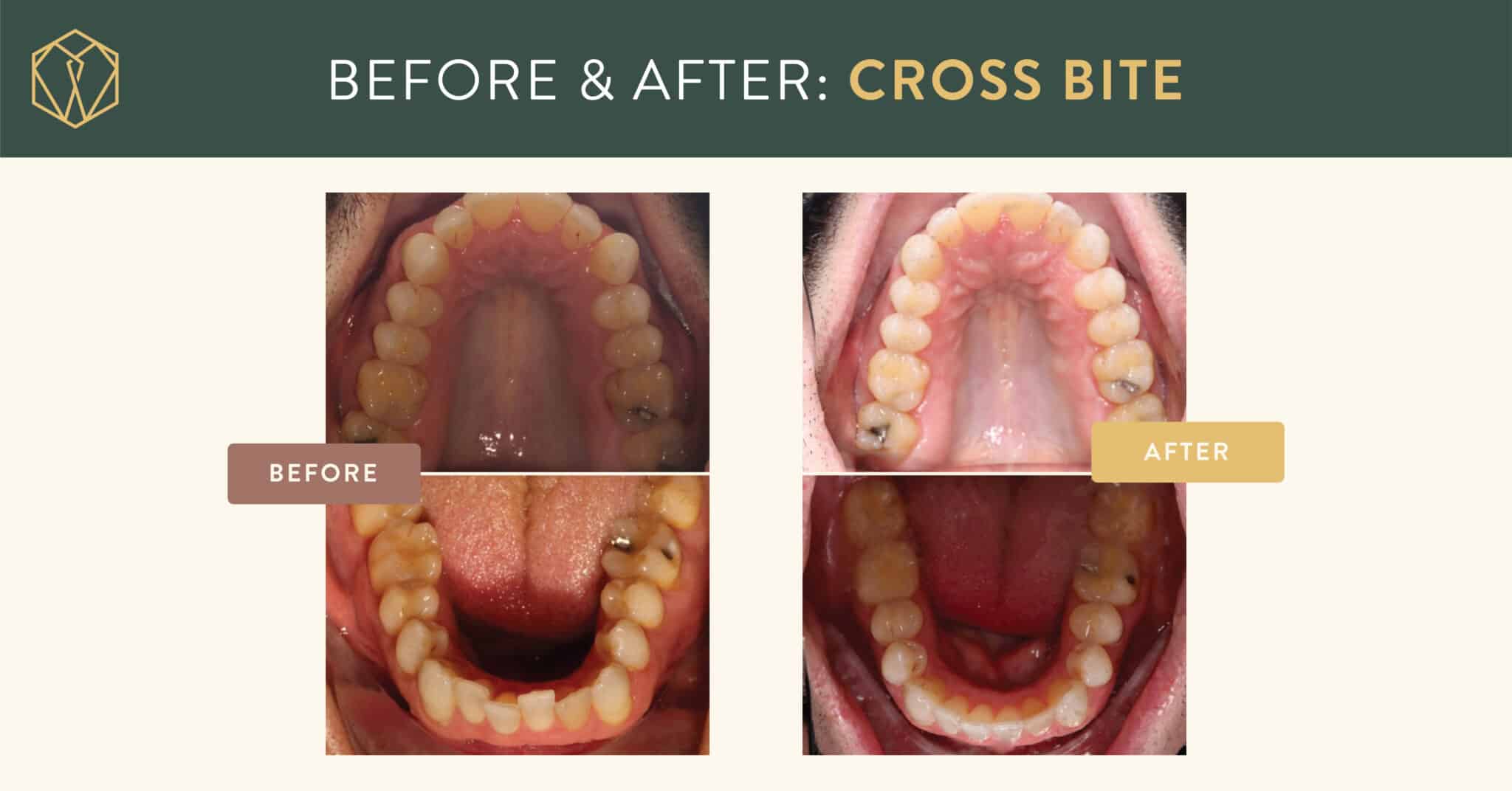
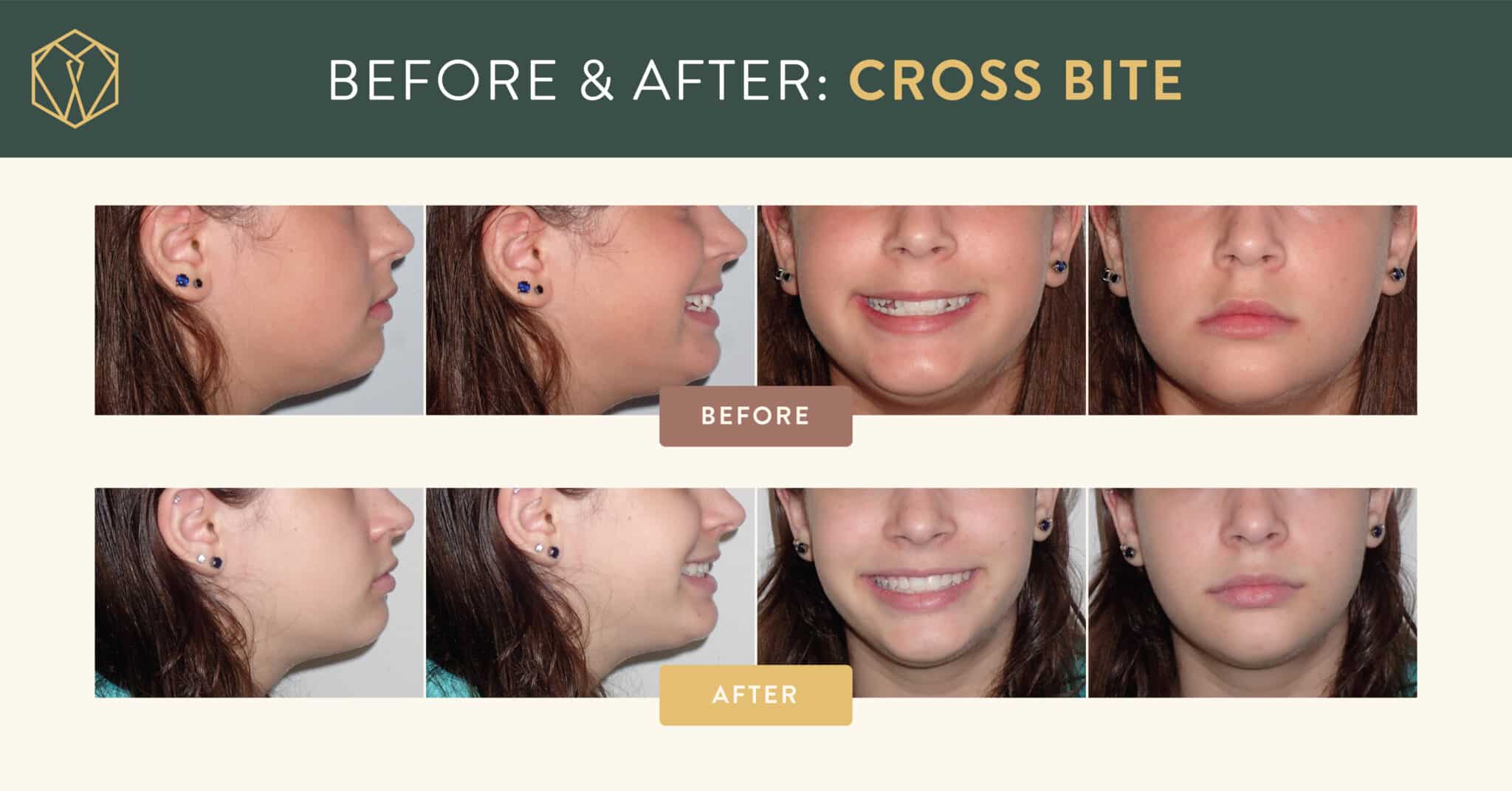
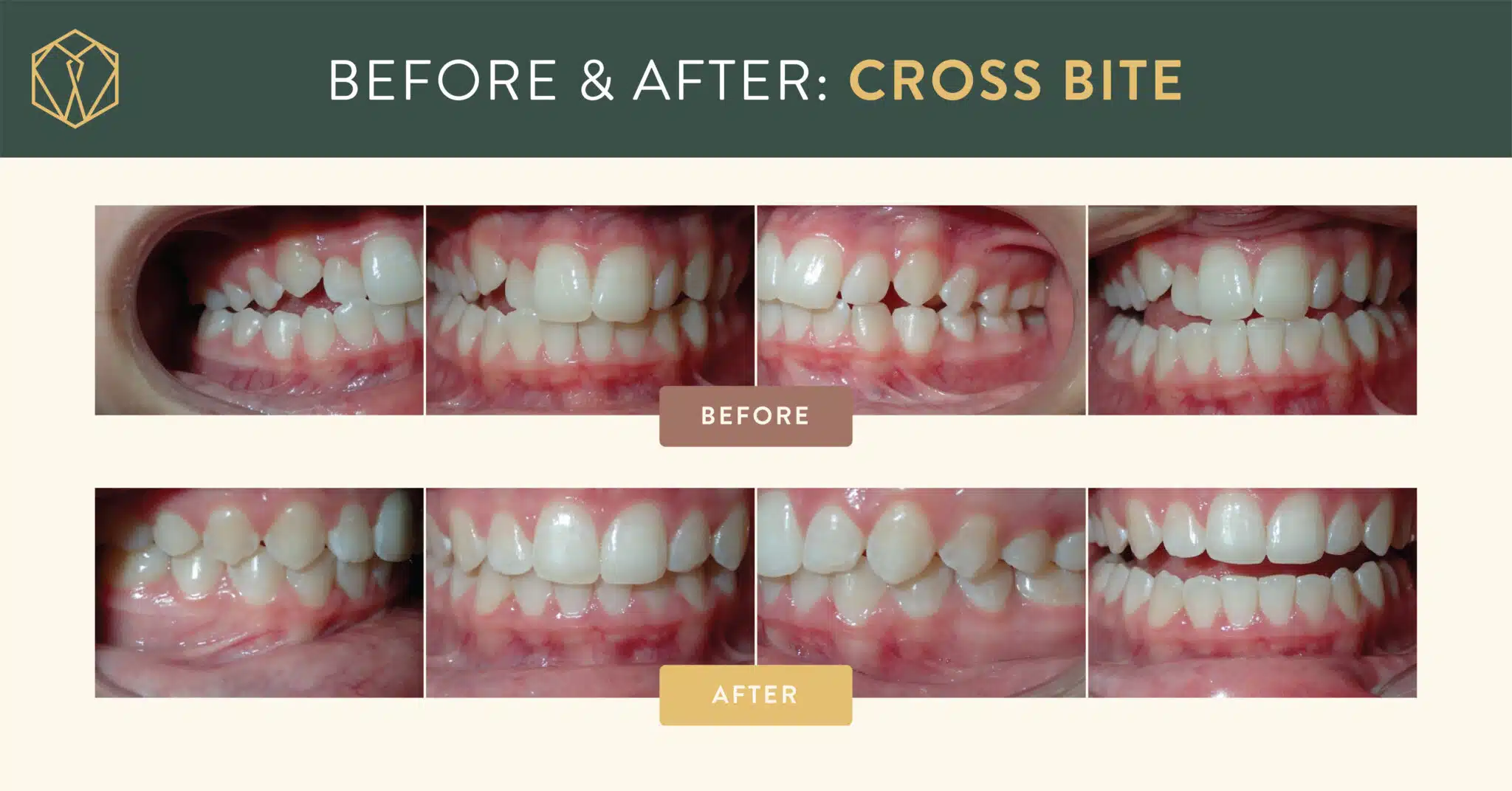
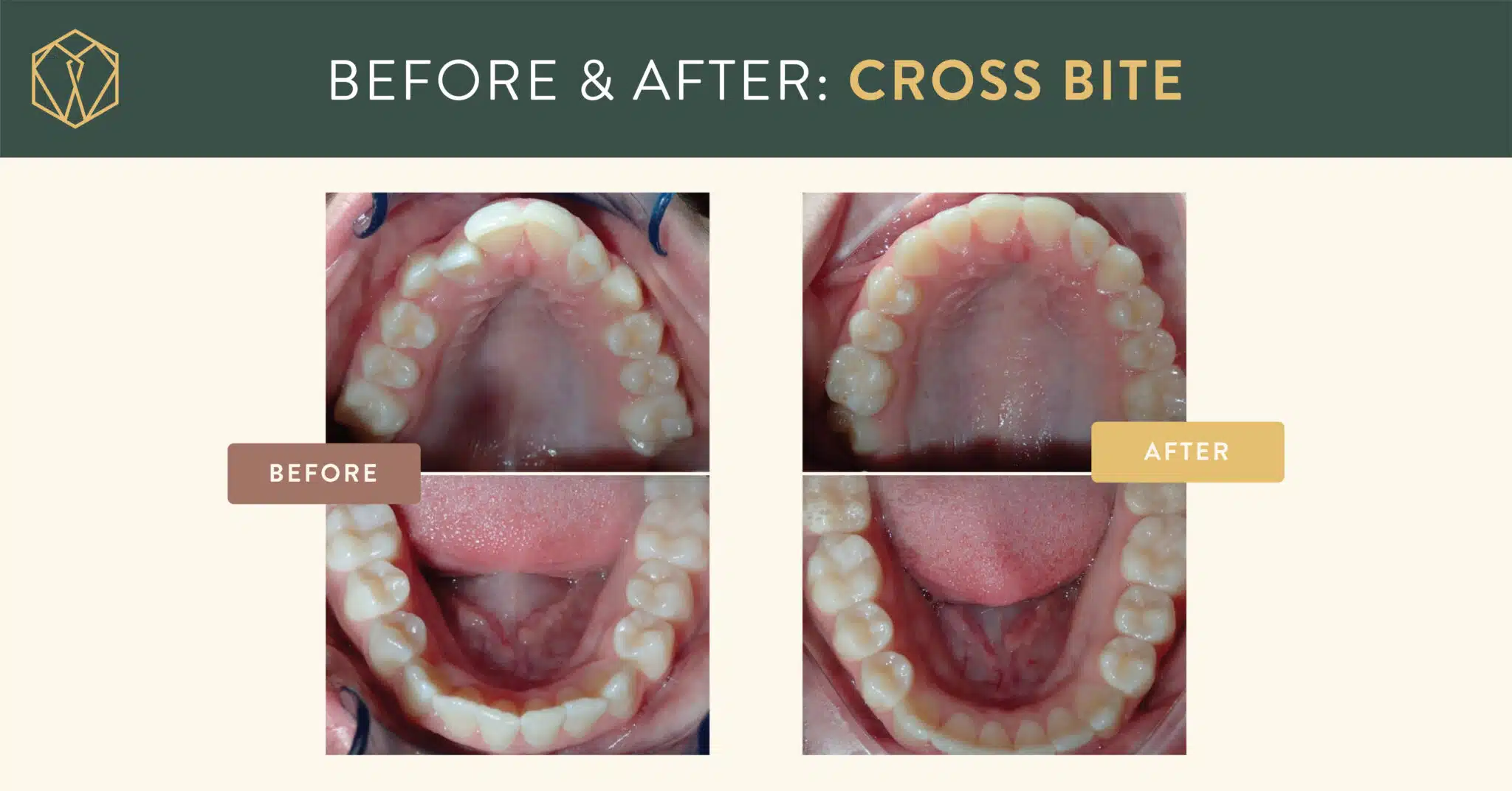
Crowded Teeth
Teeth crowding is what people commonly call “crooked teeth.” You don’t have enough room on your jaw for permanent teeth to erupt, so they come in sideways, tilted, or in front of or behind the other teeth.
This is sometimes caused by baby teeth falling out too early, leaving time for permanent teeth to move into the space and not enough room for the permanent tooth to come in properly. It can also be caused by a jaw that’s too small for all teeth to come in straight.
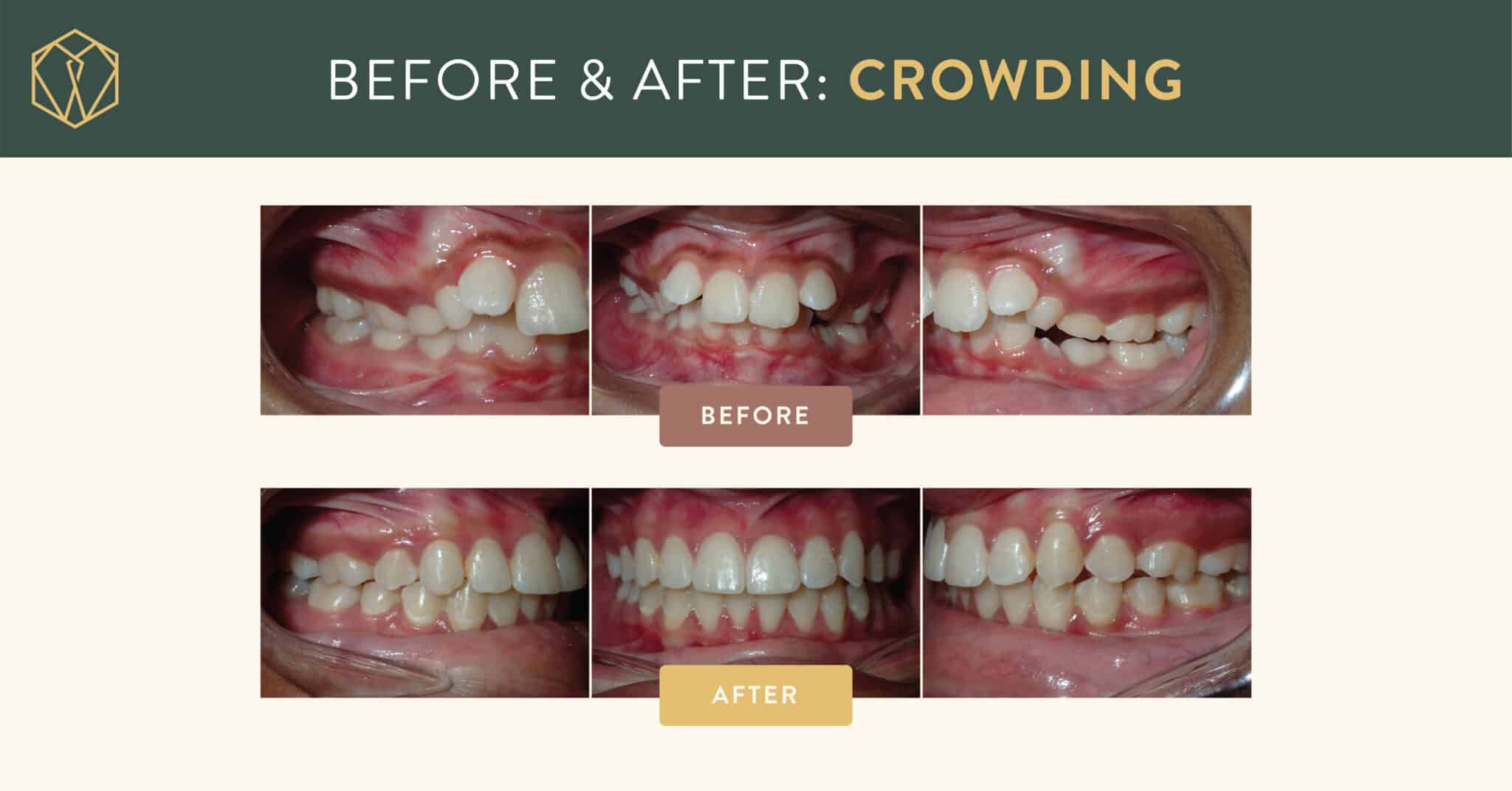
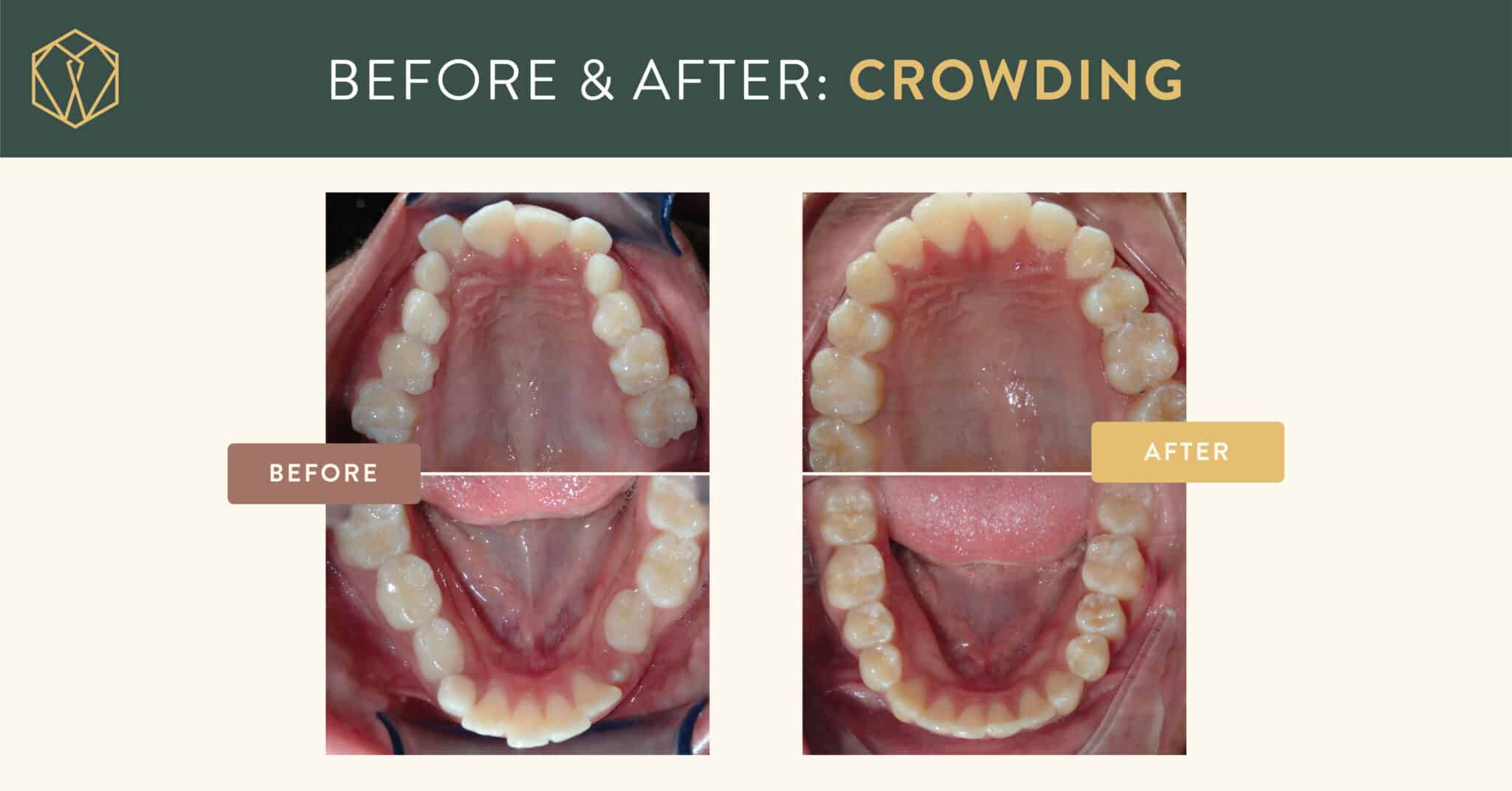
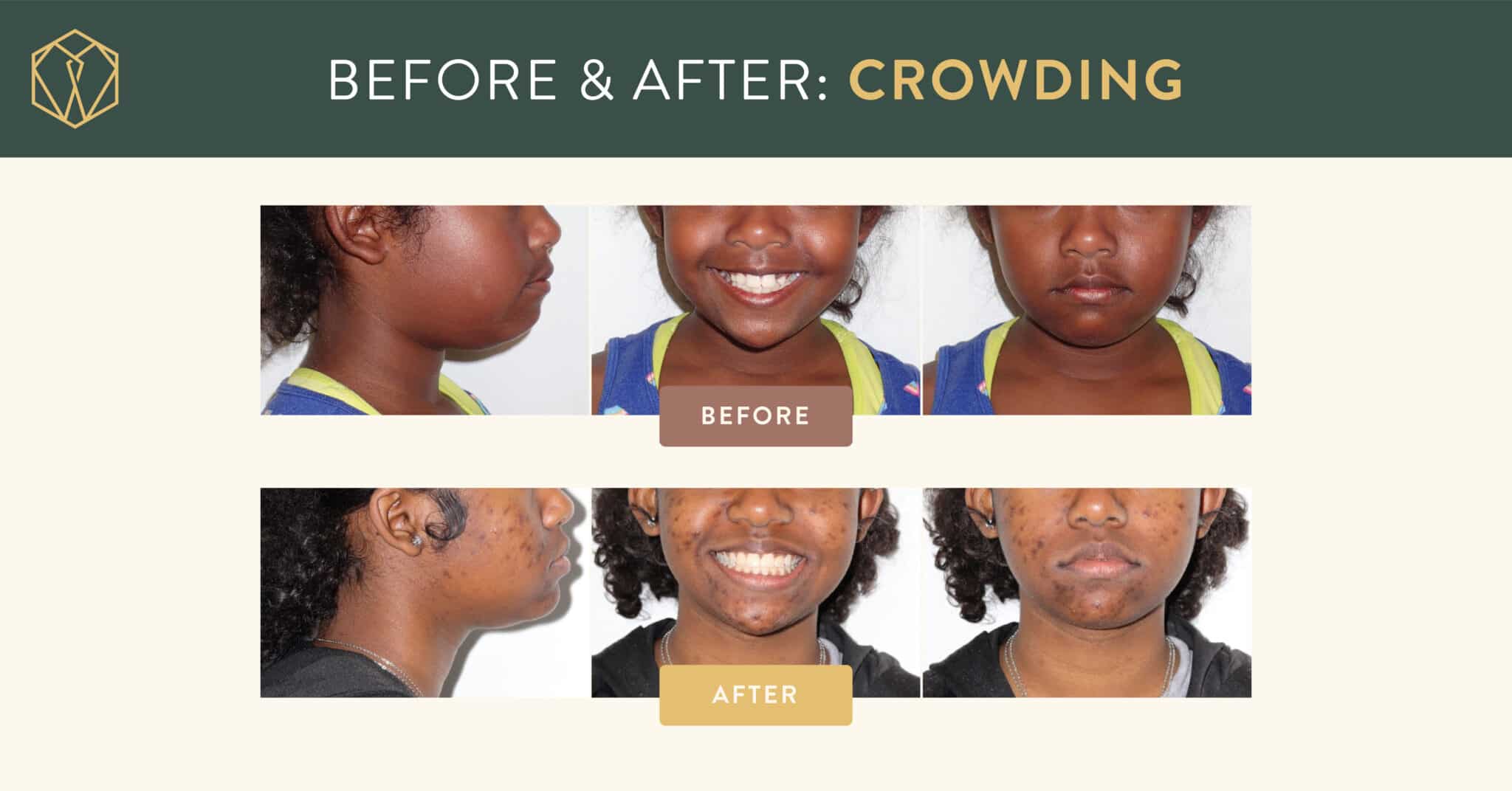
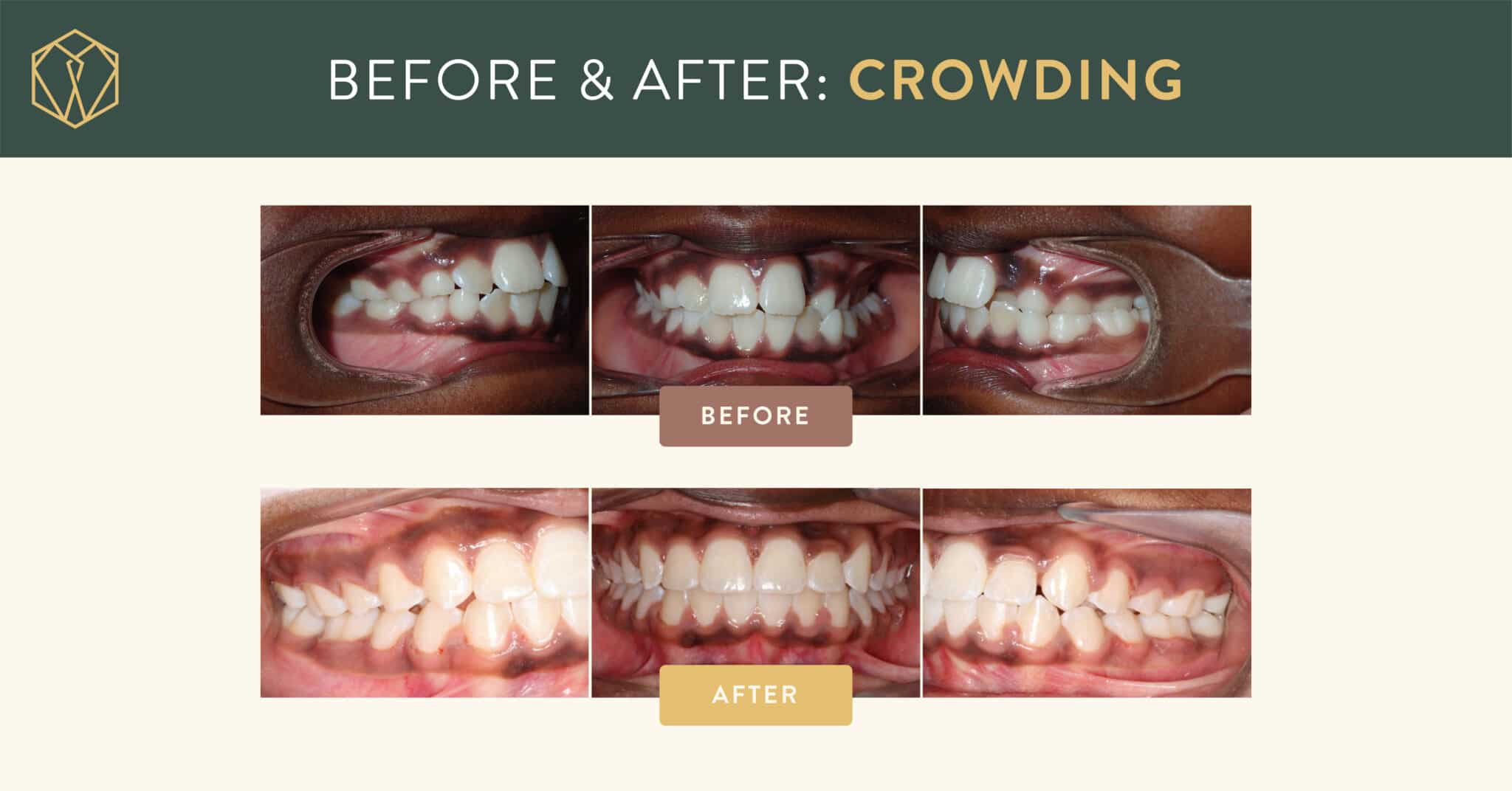
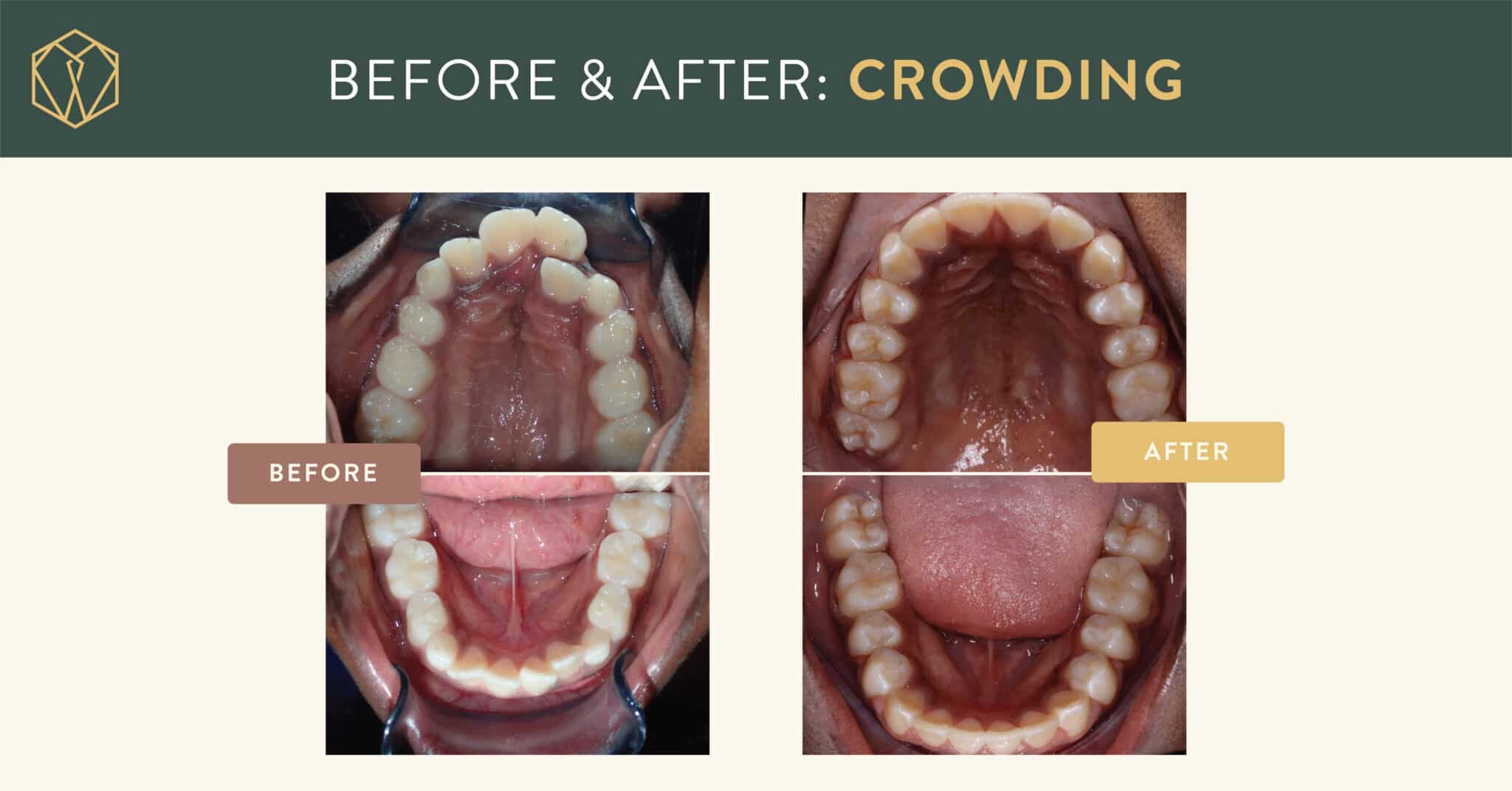
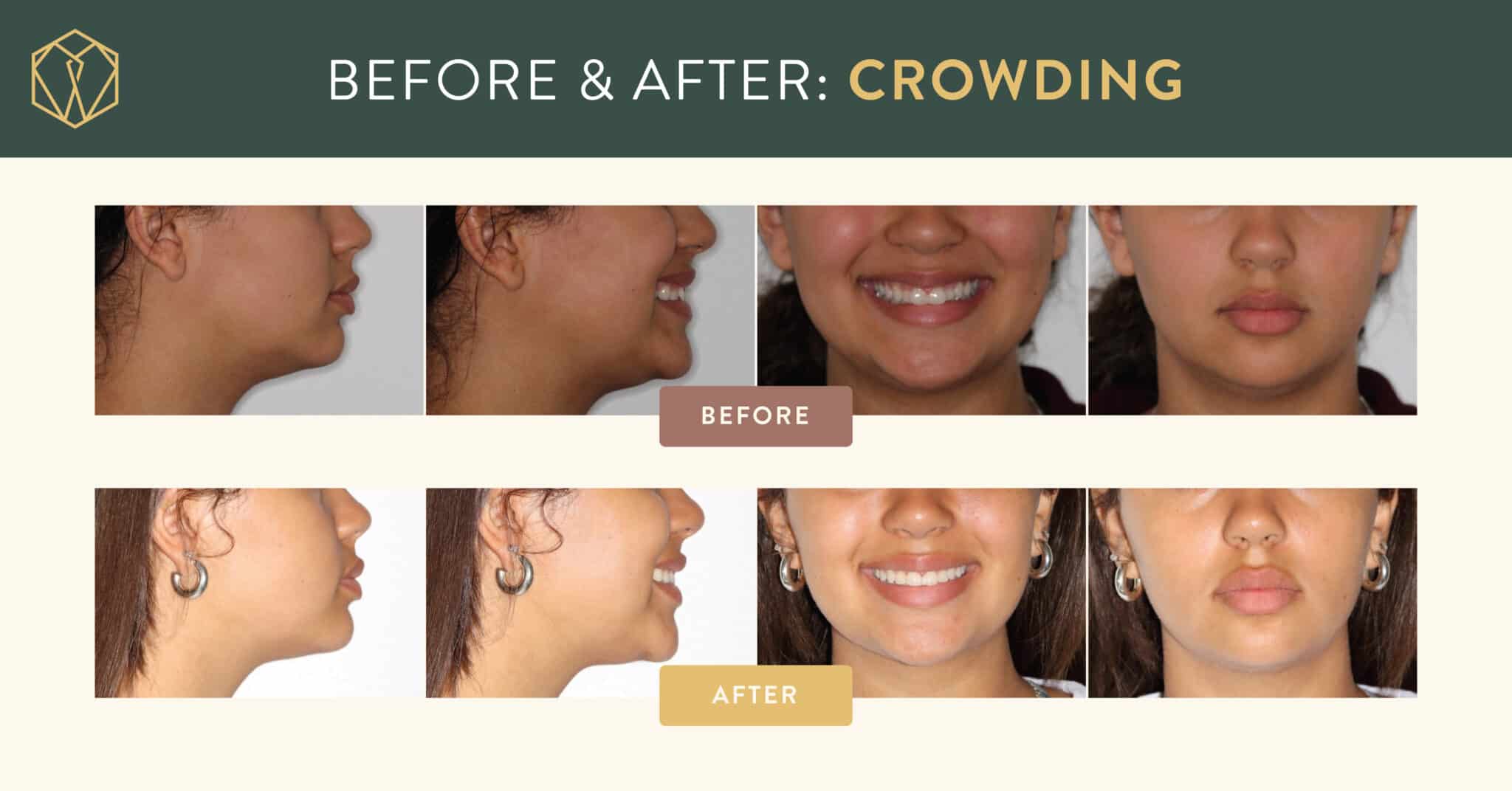
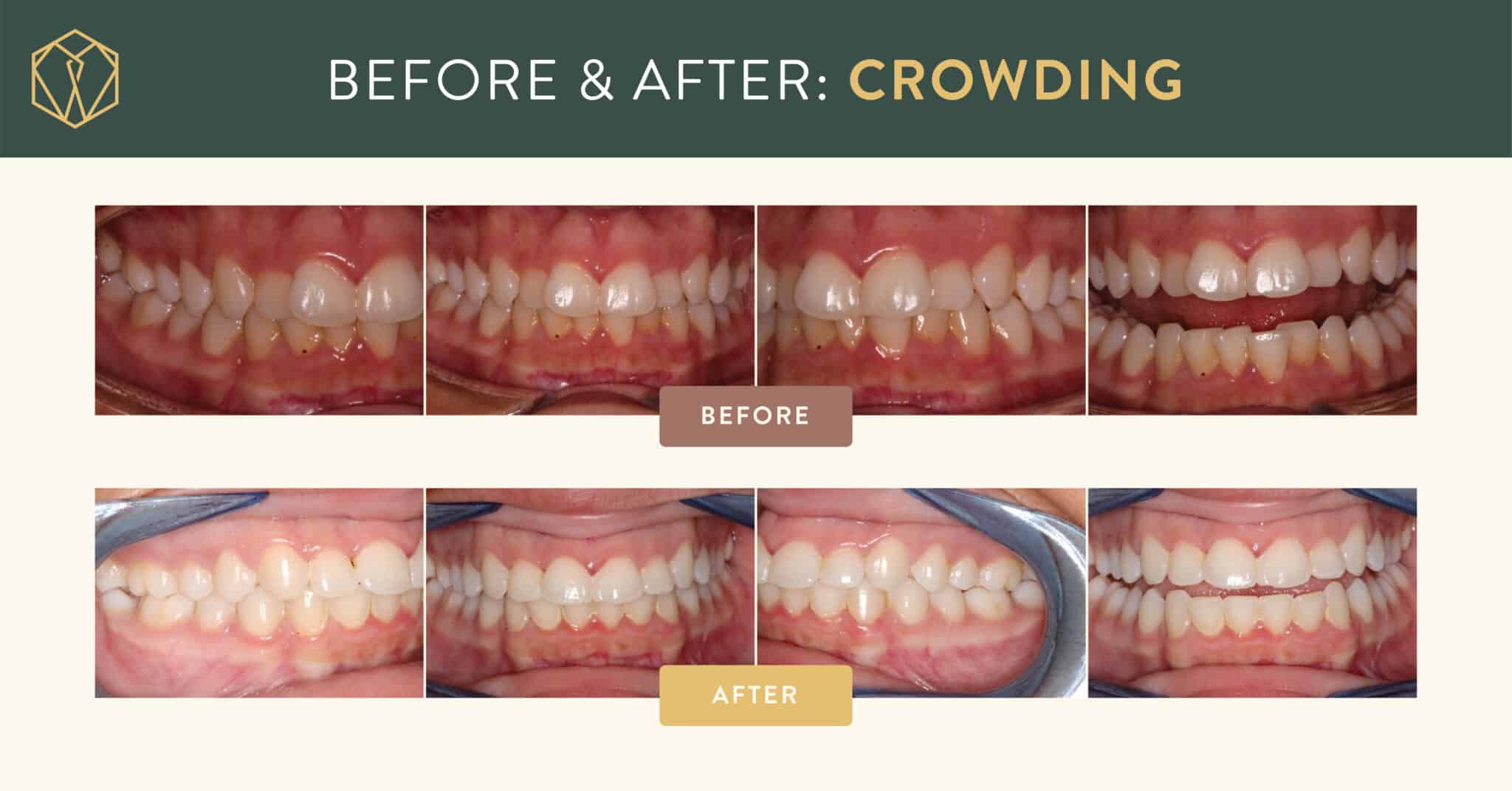
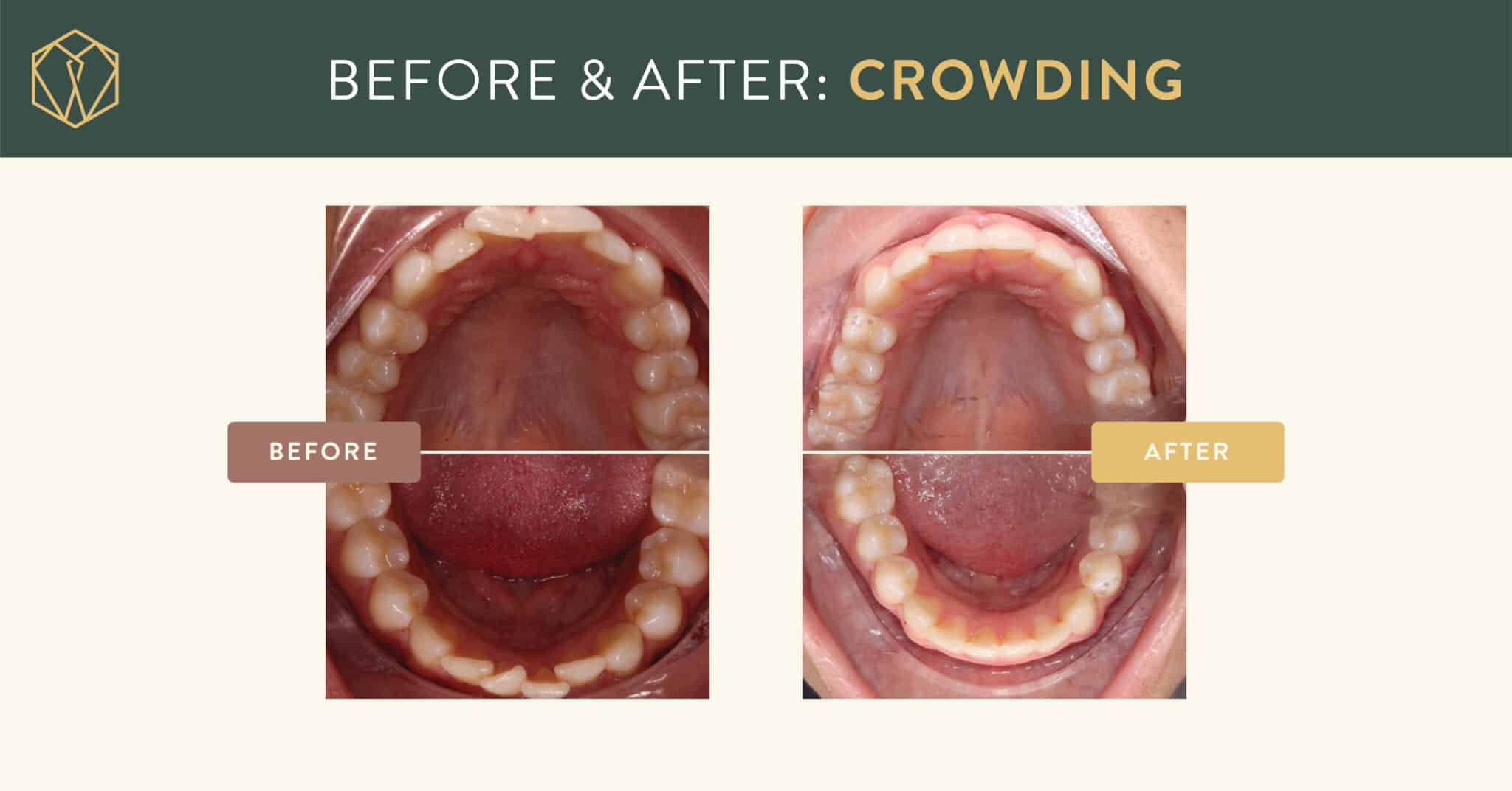
Overjet
Braces move the teeth into their proper positions, but we sometimes use a palate expander to make room for all teeth. This applies pressure to either side of the jaw and widens it over several months.
An overjet or deep bite is an overbite with a much wider space between the upper and lower teeth. An overjet can make biting and speech even more difficult than a typical overbite, as well as radically change the shape of the face. Overjets are often caused by bad habits such as thumb-sucking or pacifier use beyond age 2, tongue thrusting, or even genetics. Braces will move your overjet teeth back into place.
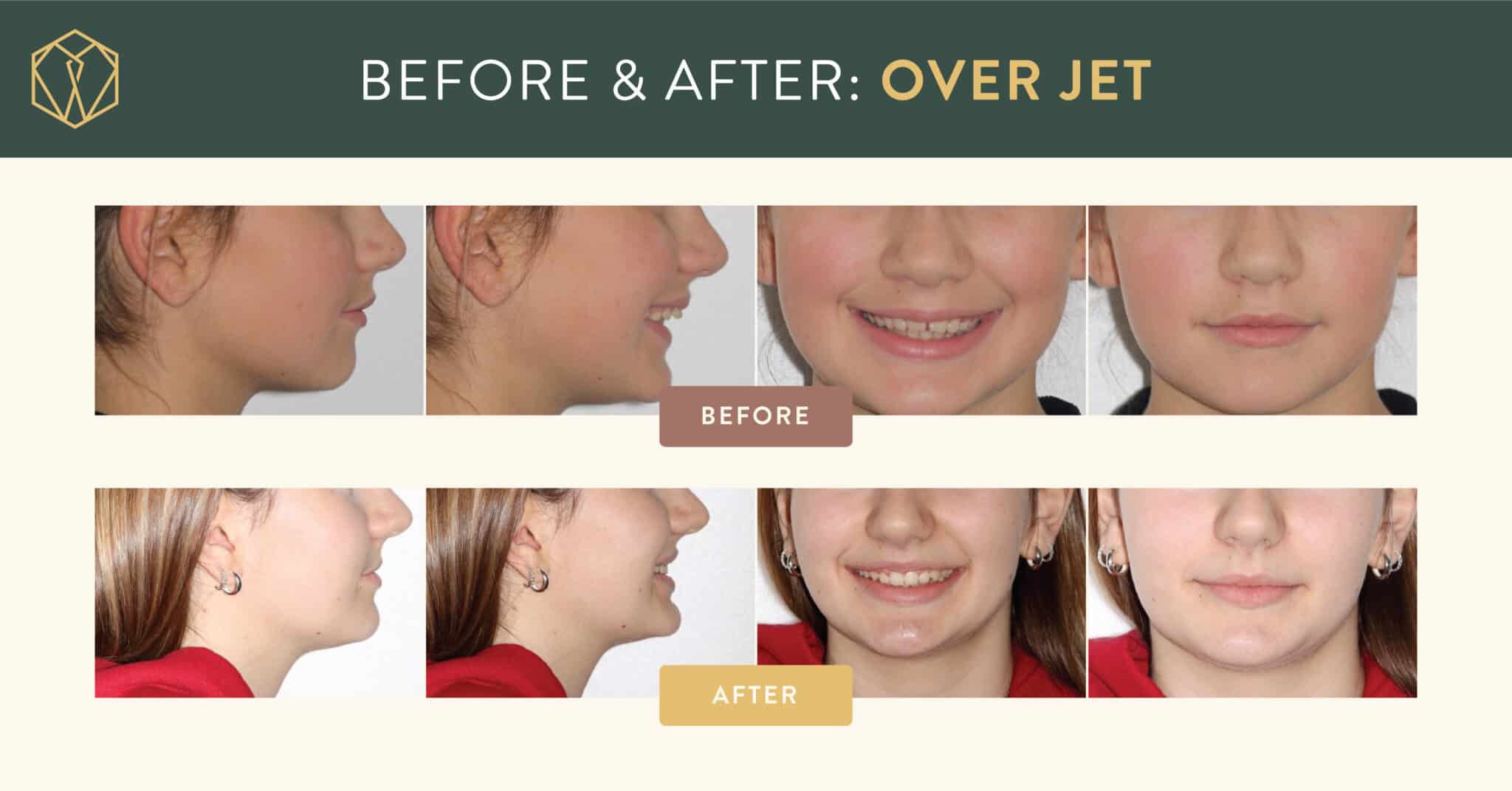
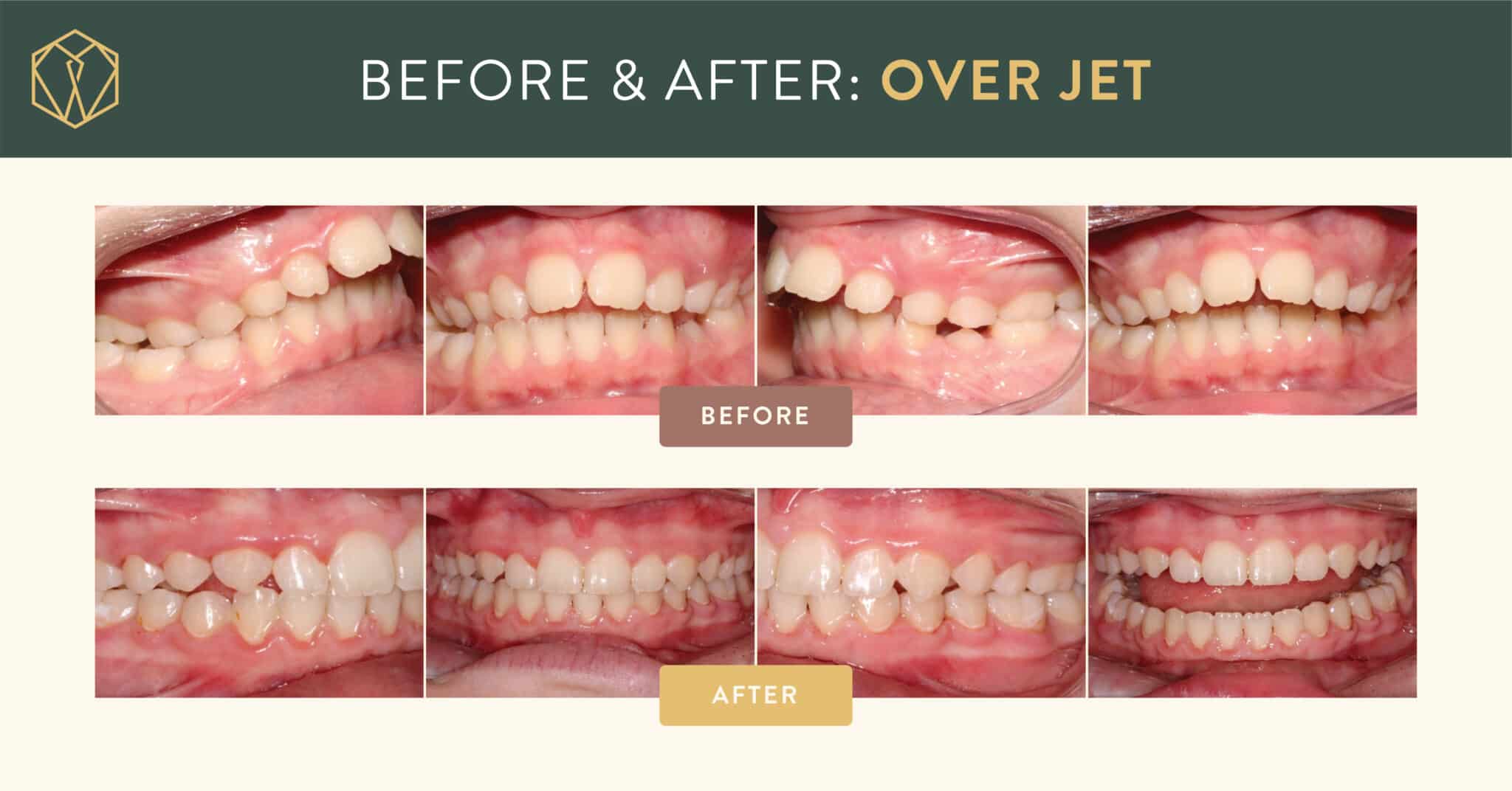
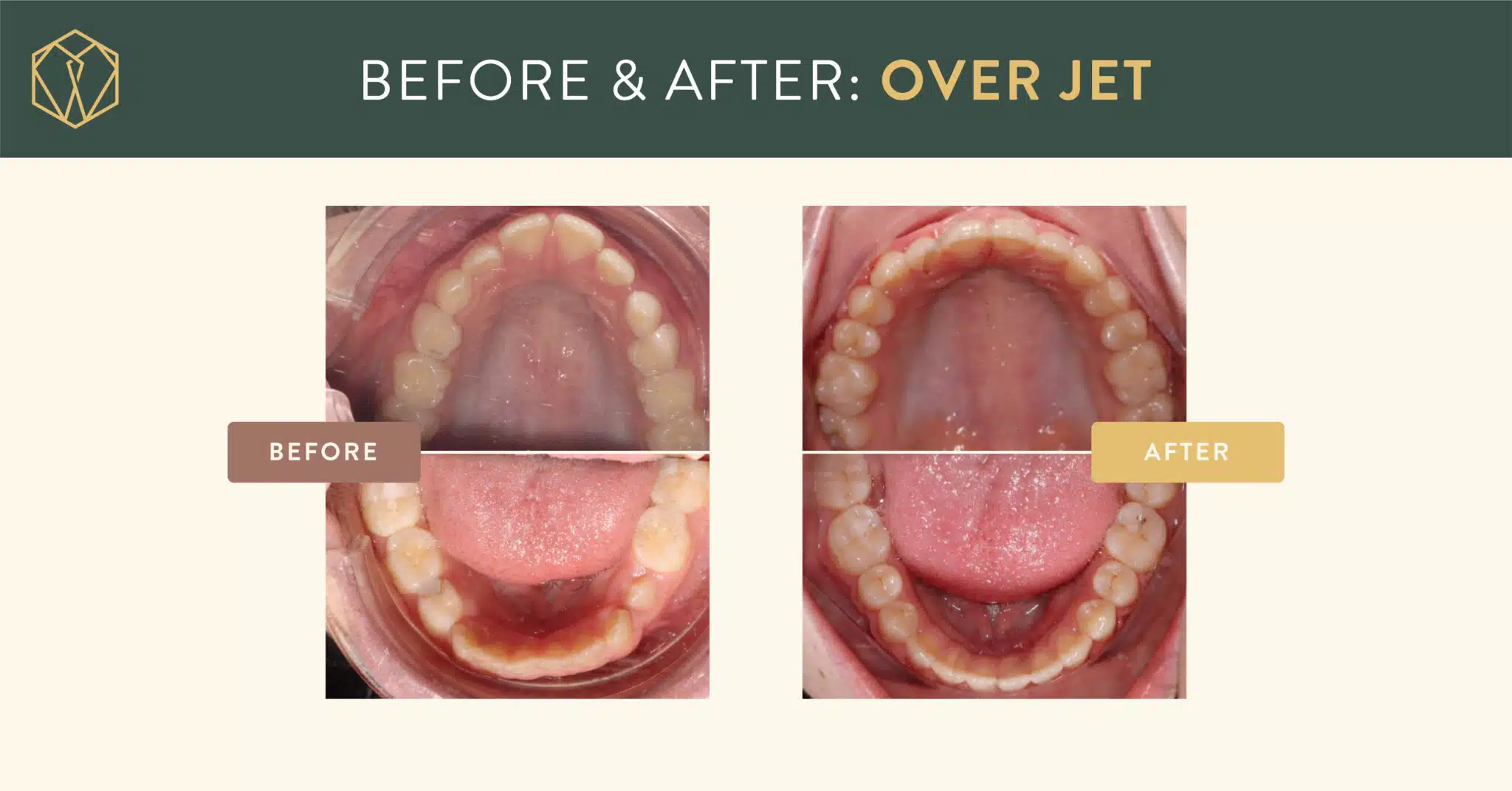
Open Bite
What is an open bite? With an open bite, the upper teeth angle outward rather than just sit in front of the bottom teeth like an overbite. Sometimes called “buck teeth,” an open bite can cause the teeth to stick out between the lips in severe cases. Braces can move the teeth back to their proper angle and set them back in the mouth where they belong.
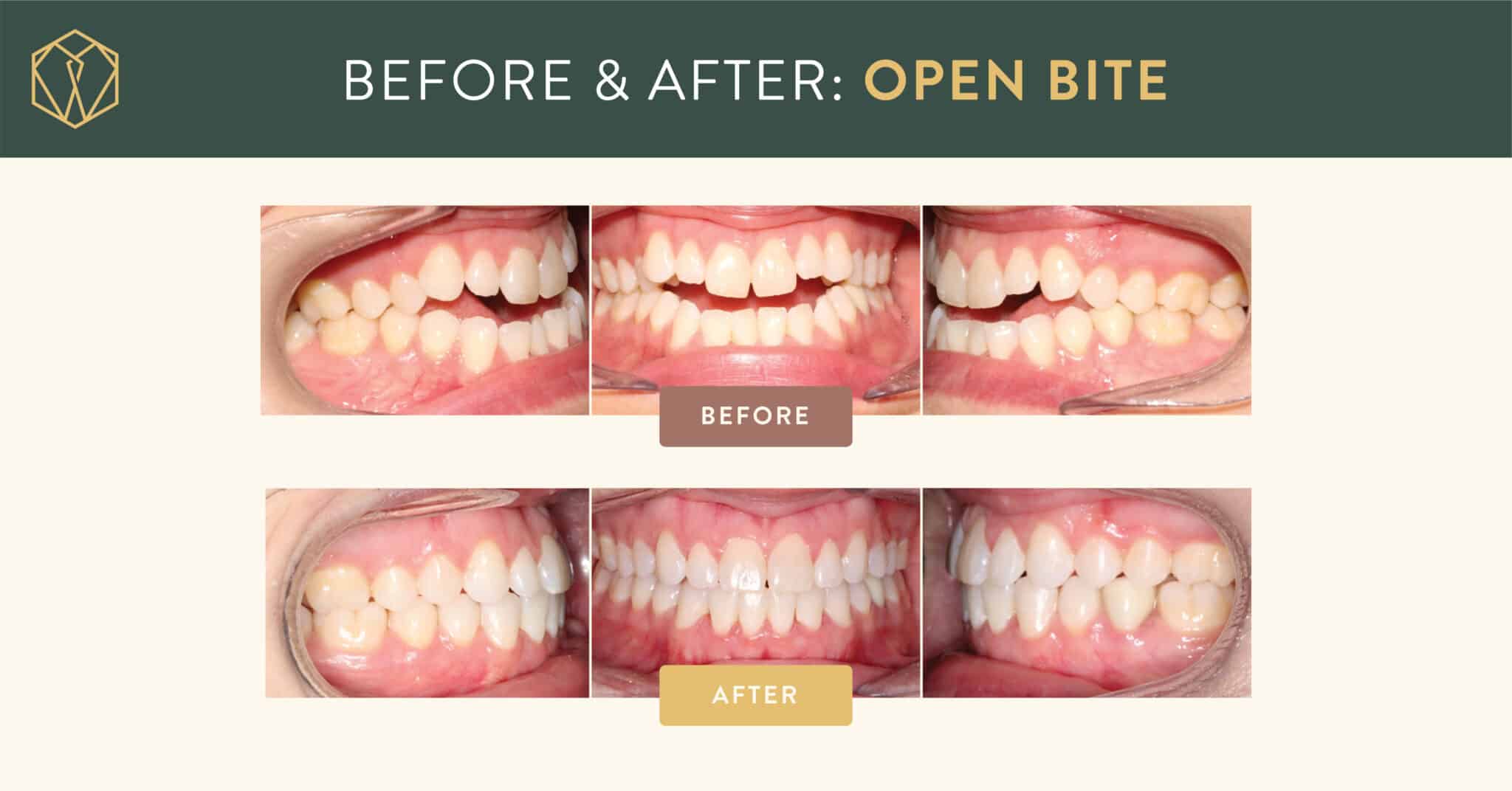
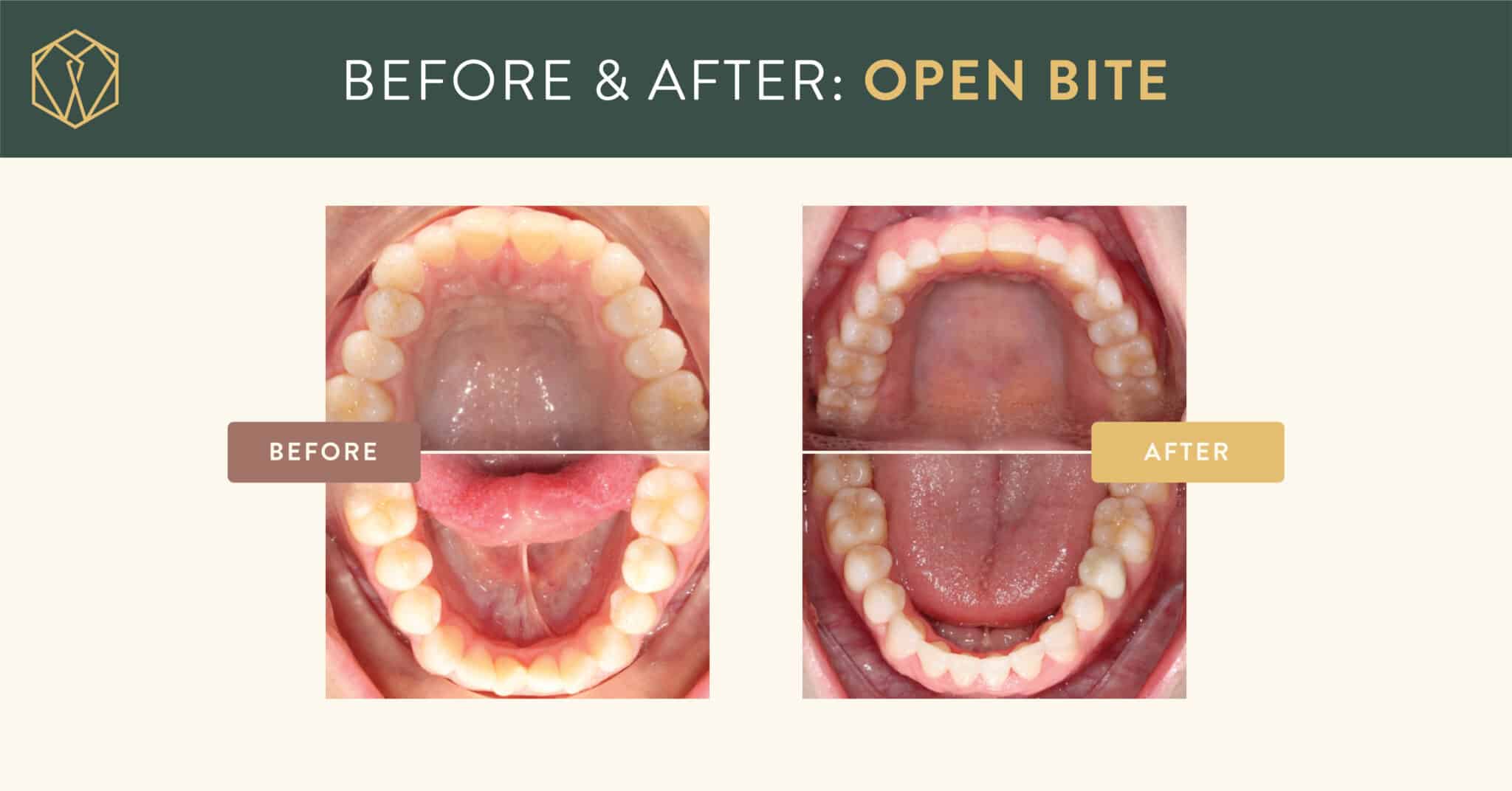
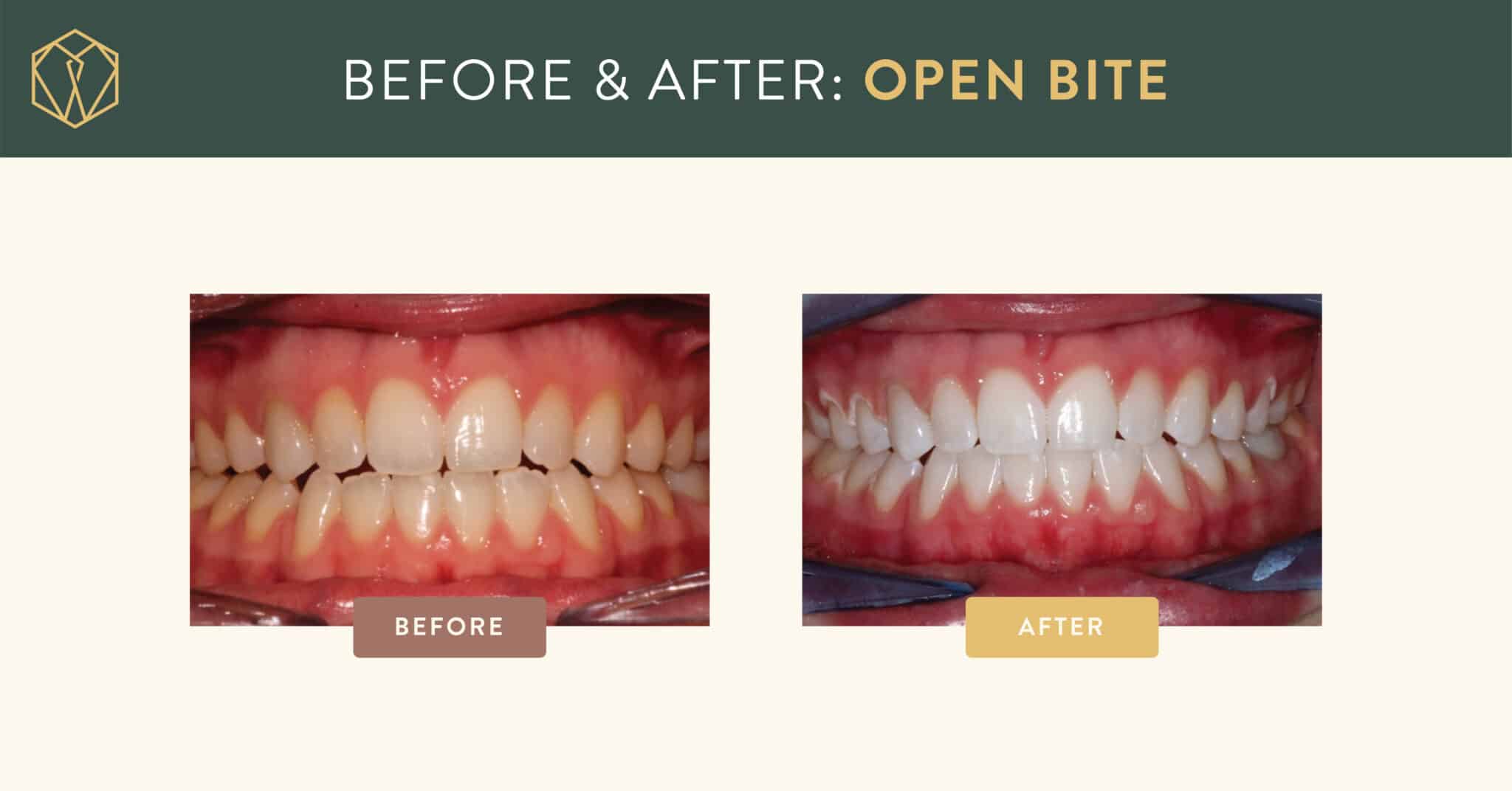
Spacing
Crowded teeth don’t have enough space, but sometimes, you get teeth with too much space. While this often happens between the front two teeth (incisors), gap teeth can happen anywhere, especially where other teeth have been lost. Food can get trapped in the gaps more easily, leading to faster tooth decay and even periodontal disease. Braces can eliminate those gaps and make it easier to keep your teeth clean.
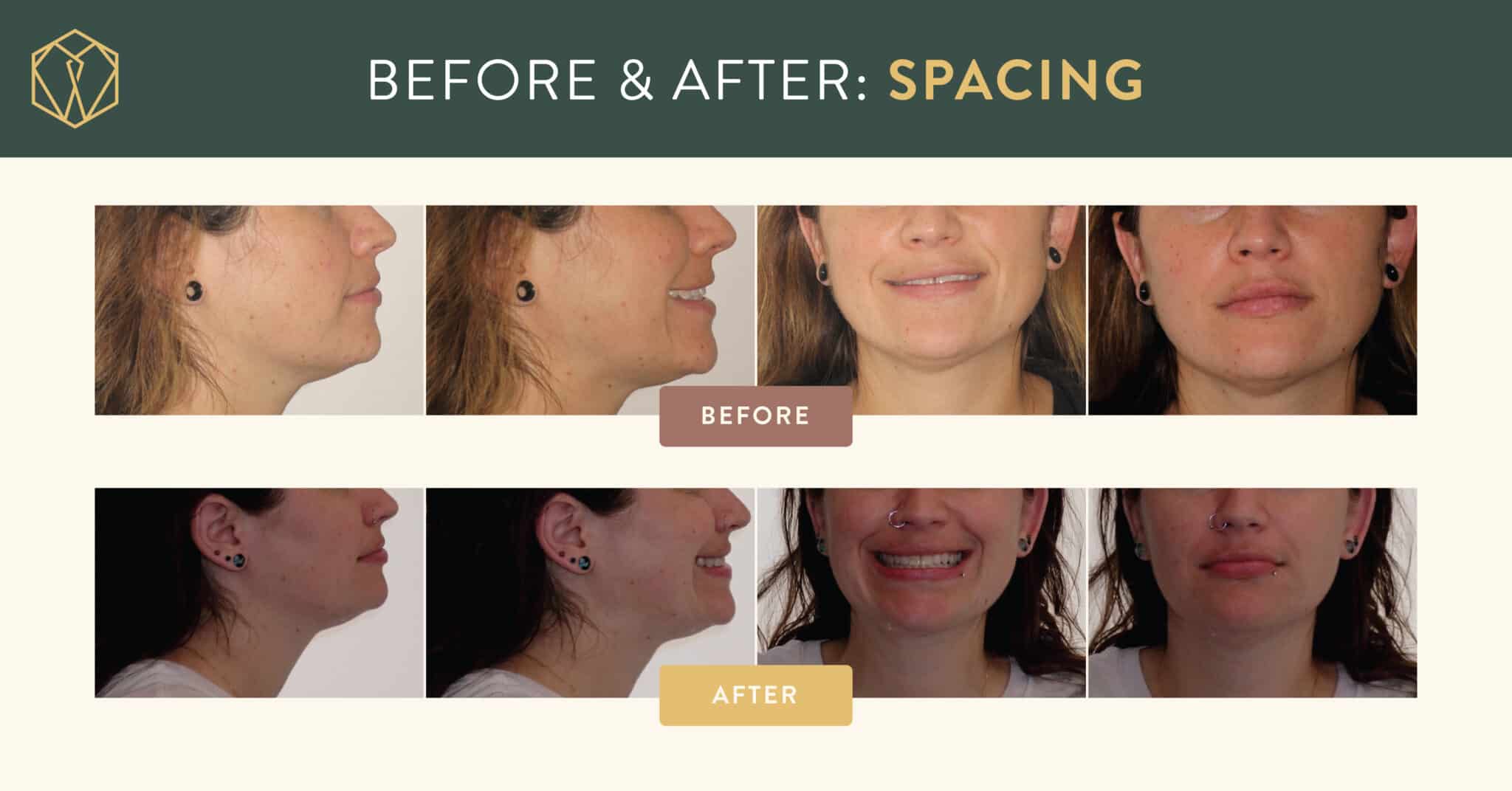
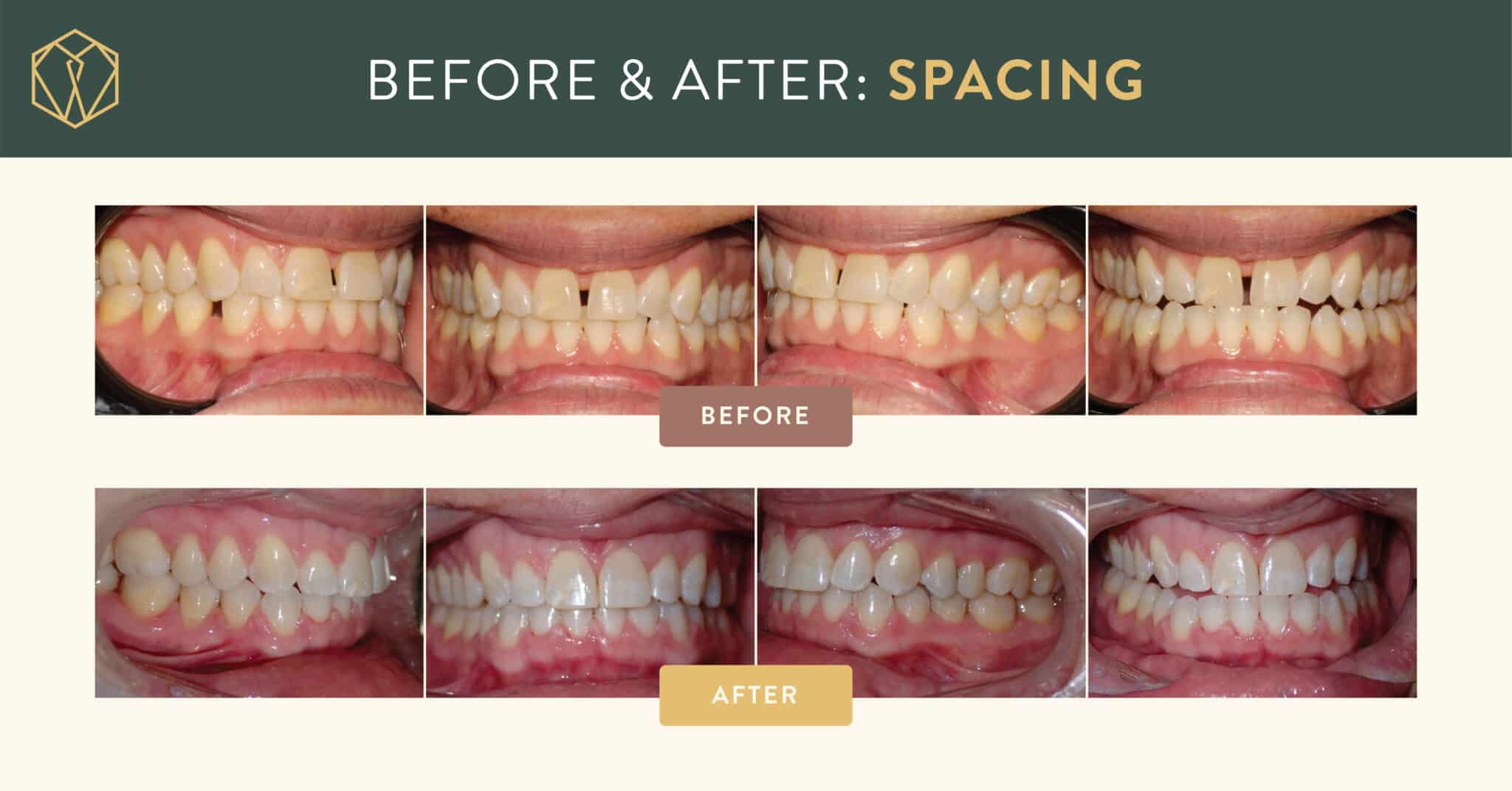
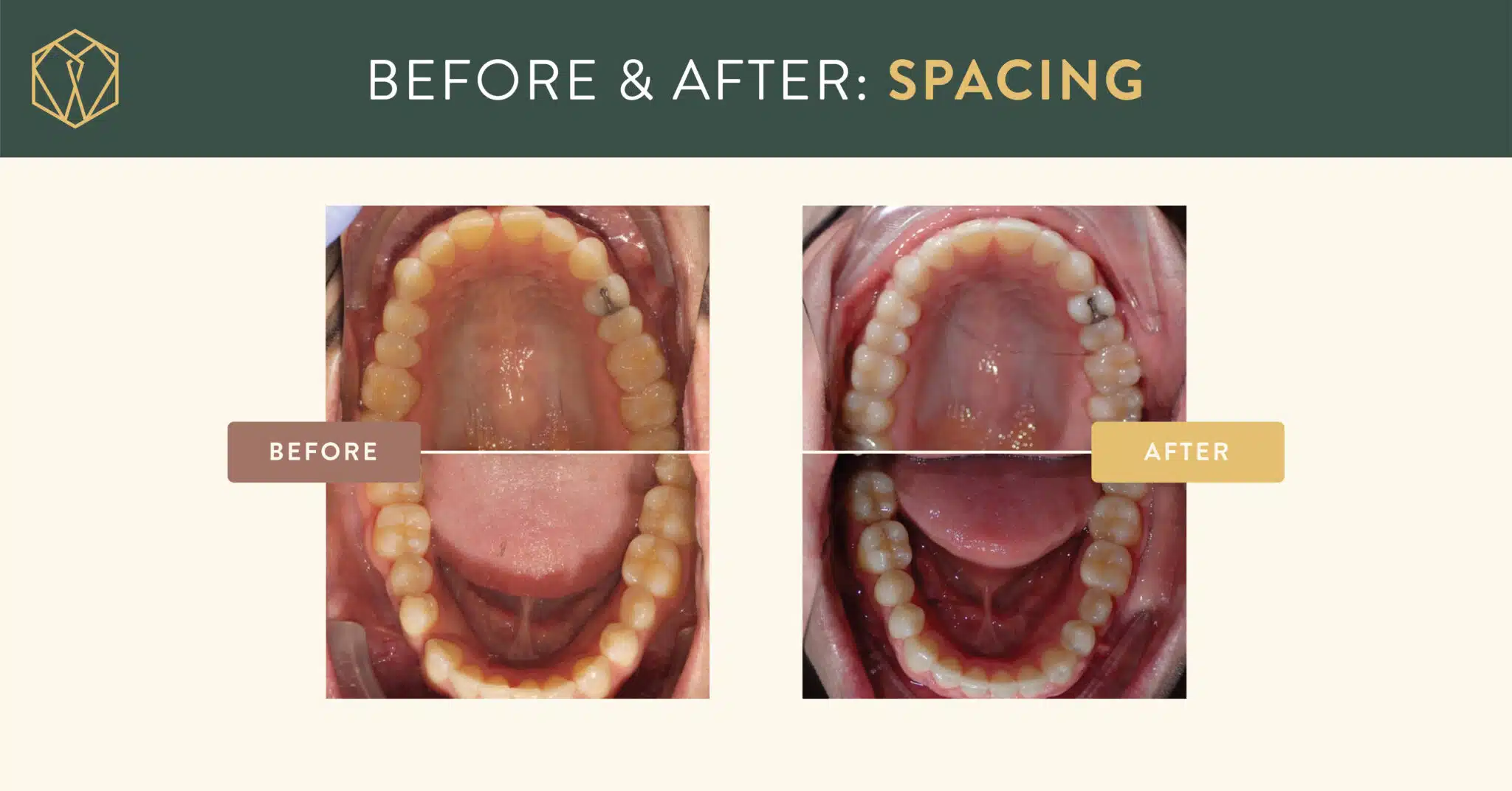
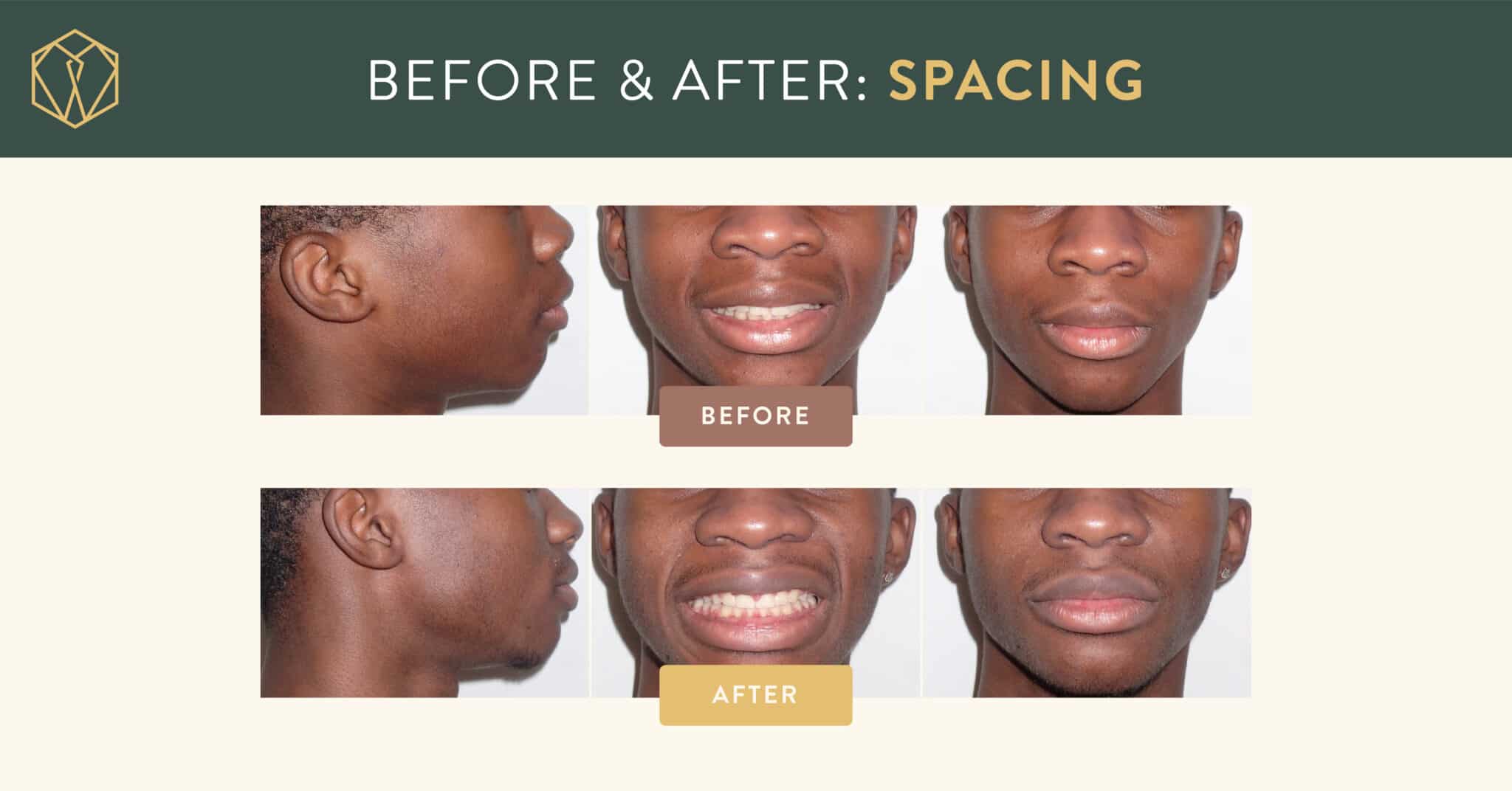
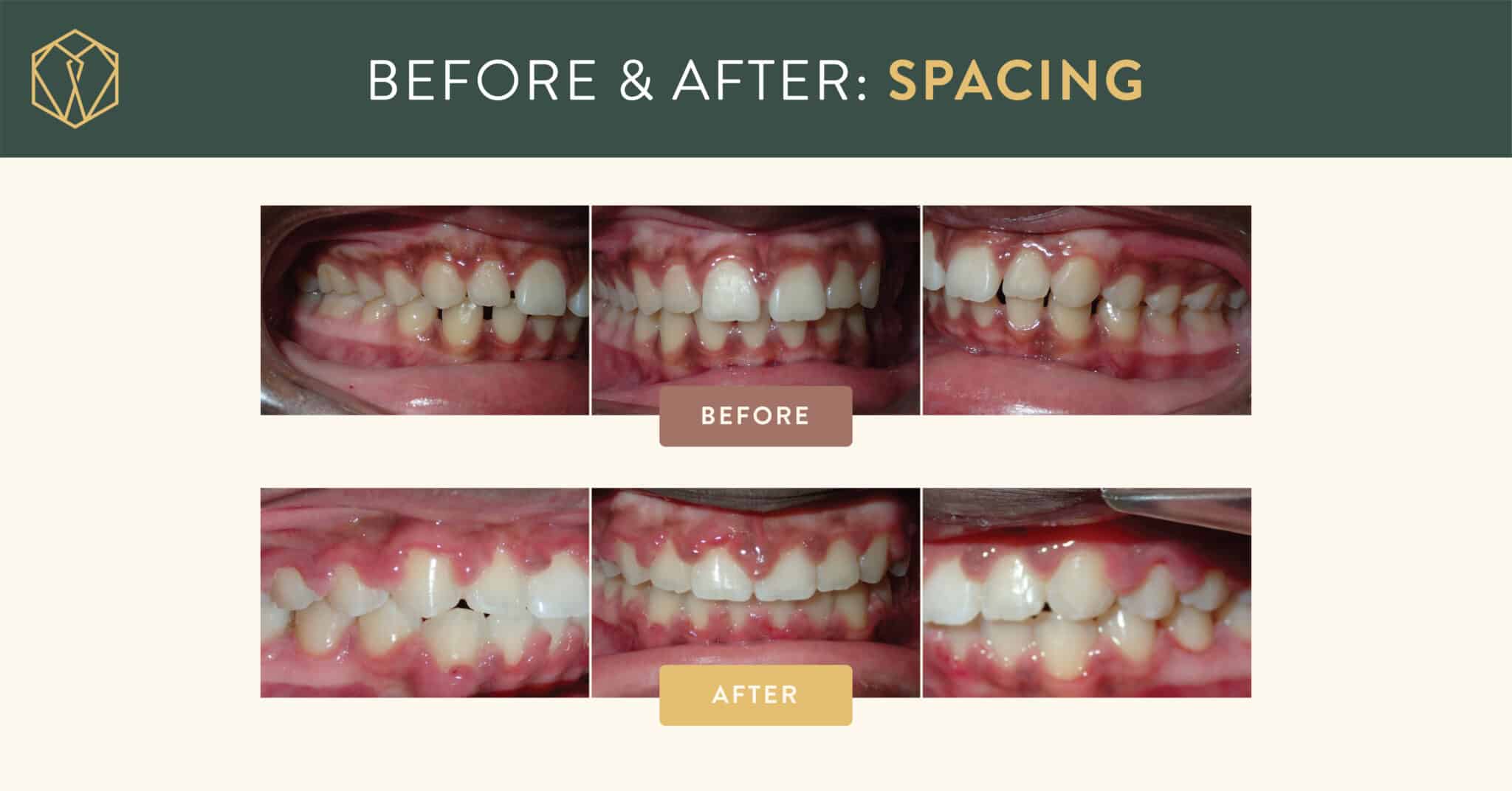
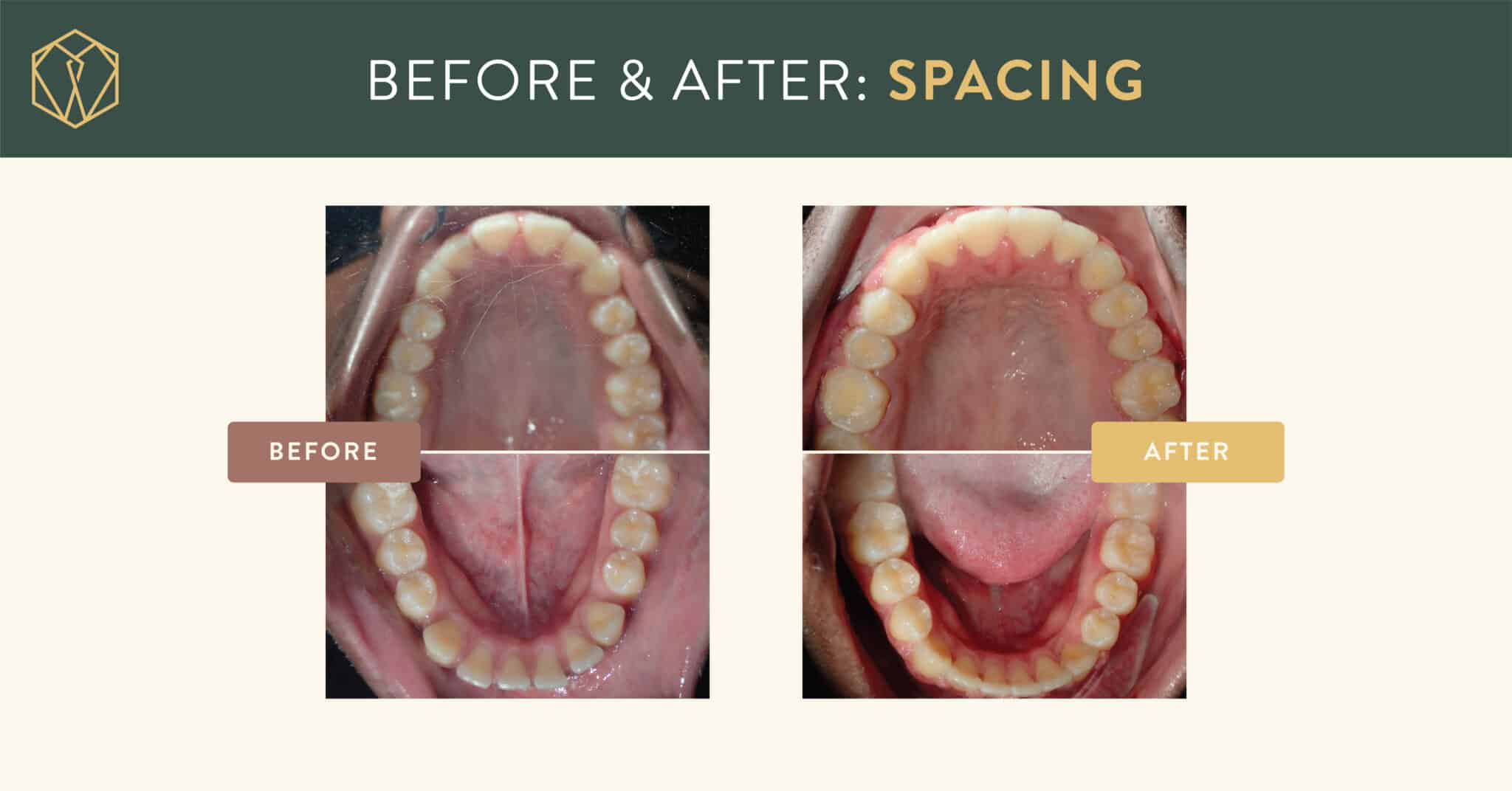
Can Braces Fix My Gums?
You may not think braces can help your gums, but they can! Bad teeth don’t just make it more challenging to clean them, but they also make it more difficult to clean your gums. Plaque buildup along the gum line can cause inflammation of the gums, known as gingivitis. If left untreated, that can develop into periodontal disease.
Straightening your teeth can make cleaning your gums and teeth easier, reducing your chances of getting periodontal disease and reducing or stopping gingivitis.
Can Braces Fix My Misaligned Jaw?
In addition to problems with your teeth and gums, you could also have a misaligned jaw. Can braces move your jaws into place? Yes, they can! We can use braces and rubber bands to realign your jaw so that your teeth connect properly. Fixing a misaligned jaw makes chewing easier and reduces tooth wear. It can also reduce headaches, jaw fatigue, temporomandibular joint deterioration, and other dental issues.
Getting Braces in Hanover, PA
Braces can do so much more than just align your teeth. They can change your appearance, give you more confidence, and make it easier to keep your teeth clean and strong for a lifetime of use. Teeth in the correct positions are vital to your oral health.
Are you ready for braces or other orthodontic treatments? If you’re looking for braces in Hanover, PA, or braces in Reisterstown, MD, Shoe Orthodontics is ready for you! Request an appointment for a free consultation with us, and we can show you what braces can do for you! You may be surprised at how many ways braces can help your smile.
